The 17 Best Books on Critical Thinking (to Read in 2024)
All products were independently selected by our editors and contributors. When you buy through links on our site, we may earn an affiliate commission.
The aim of improving your skill of critical thinking isn’t just to be able to reason and give logical arguments about a subject skillfully; your goal is to get to the right answer, to make the right decisions and choices for yourself and others.
Critical thinking helps you:
First , improve the quality of your decisions and judgments, and reevaluate your beliefs objectively.
The human mind is rarely objective. However, mastering the skill of critical thinking keeps your mind objective, at least about those things based on facts.
Take for example the beliefs you have about yourself; Some are based on facts, some on subjective (negative) opinions of others.
Second , become an independent thinker (learn to think for yourself); take ownership of your values, beliefs, judgments, and decisions.
Mastering critical thinking is essential , especially in our modern times, because you must:
- Make a tone of decisions every day;
- Think and come to the right conclusion fast;
- Solve (mostly alone) your problems and issues;
- Weigh carefully facts and information you receive from the dozens of sources you have at your disposal;
- Reevaluate your strategies, beliefs, and habits periodically.
Critical thinking is a skill that you must learn; you’re not born with it. To make your journey a little easier, we’ve gathered the best critical thinking books so you can learn from the masters. Get inspired to become a critical thinker in no time!
The best books on critical thinking:
Table of Contents

1. Critical Thinking: A Beginner’s Guide to Critical Thinking, Better Decision Making, and Problem Solving – Jennifer Wilson
2. wait, what: and life’s other essential questions- james e. ryan, 3. think smarter: critical thinking to improve problem-solving and decision-making skills – michael kallet, 4. brain power: learn to improve your thinking skills – karl albrecht, 5. the art of thinking clearly – rolf dobelli, 6. being logical: a guide to good thinking – d.q. mcinerny, 7. predictably irrational, revised and expanded edition: the hidden forces that shape our decisions – dr. dan ariely, 8. a more beautiful question: the power of inquiry to spark breakthrough ideas – warren berger, 9. a rulebook for arguments – anthony weston, 10. thinking, fast and slow – daniel kahneman, 11. the organized mind: thinking straight in the age of information overload – daniel j. levitin, 12. don’t believe everything you think: the 6 basic mistakes we make in thinking – thomas e. kida, 13. the decision book: 50 models for strategic thinking – mikael krogerus, roman tschäppeler, philip earnhart, jenny piening, 14. weaponized lies: how to think critically in the post-truth era – daniel j. levitin, 15. the demon-haunted world: science as a candle in the dark paperback – carl sagan, ann druyan, 16. how to think about weird things: critical thinking for a new age – theodore schick, lewis vaughn, 17. the 5 elements of effective thinking – edward b. burger, michael starbird.
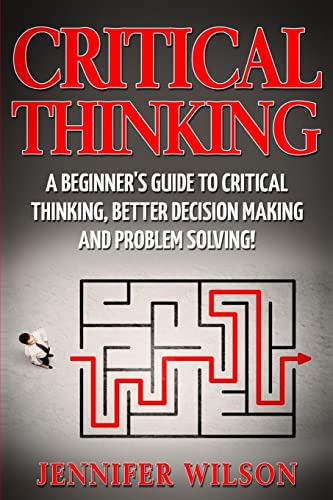
As the title says, this book introduces you to the art of critical thinking. You’ll discover in it:
- What is critical thinking in practice,
- The different thought processes of critical thinking,
- How will your life be better mastering critical thinking,
- The things your brain needs to enjoy exercising critical thinking,
- Techniques you can use for solving problems,
- How to become a better decision maker, Strategies to use in your critical thinking processes,
- Ways to make good decisions when more people (not just you) are involved,
- Tips to frame your questions in order to maximize the efficiency of your critical thinking.

Wisdom comes from observation, learning, practice, and asking the right questions.
Using examples from history, politics, and his own personal life, James e Ryan shows you the importance of knowing how to:
- Ask questions and gain a better understanding,
- Get to be more curious,
- Push yourself to take action,
- Make your relationship stronger,
- And stay focused on the important things in life.
Related: Critical Thinking Examples
The book starts with the five fundamental questions:
- Couldn’t we at least…?
- How can I help…?
- What truly matters….?
Knowing how to formulate, address, and deliver the right questions doesn’t leave room for misunderstandings, misinterpretations; asking the wrong questions will most probably give you a wrong answer.
This book (Wait, What?: And Life’s Other Essential Questions) will make you feel (more) courageous; after all, asking questions thanks courage. Asking yourself and others the right questions helps you make informed decisions and decisive action.

This book is a guide on how to train your brain to work even more for you. The author (Michael Kallet) is a critical thinking trainer and coach and gives you a practical set of tools and techniques for critical thinking in your day-to-day life and business.
If you want a clear, actionable step by step program to:
- Improve your critical thinking skills,
- A better understanding of complex problems and concepts,
- And how to put them in practice, then this book is for you.
Learn how to discover the real issues that need a solution, so you don’t waste your time in trying to solve imaginary problems. Increase your mental toughness, useful and productive thought.

In this book, Karl Albrecht shows you how to:
- Build your mental strength,
- Think more clearly logically and creative,
- Improve your memory,
- Solve problems,
- Make decisions more effectively.
Karl Albrecht talks in this book about the six functional abilities you need to have and become more adaptable and an innovative thinker.
The book is packed with practical exercises, fascinating illustrations, games, and puzzles to improve your mental capabilities.

The art of thinking Clearly by Rolf Dobelli is a window into human psychology and reasoning; how we:
- Make decisions;
- Evaluate choices and options;
- Develop cognitive biases.
This book helps you notice and recognize erroneous thinking and make better choices and decisions, change unwanted behaviors and habits.
It will change the way you think about yourself and life in general because you have in this book 99 short chapters with examples of the most common errors of judgment and how to rectify them.
If you wish to think more clearly, make better decisions and choices, reevaluate your biases, and feel better about yourself, this book is for you.

When you decide you want to study the field of logic more closely and improve your critical thinking, this book might be exactly what you need. It’s written clearly and concisely laying out for you the basic building blocks of logic and critical thinking.
The ancient civilizations understood better than us how important is to study logic and rhetoric. With the help of this book, you’ll bring back into your life these essential things that our modern society forgot and missed to teach you as a child.
Having increased logical thinking doesn’t mean to ignore your emotions. It means to start from your emotions and together, (emotions and logic) to take better decisions and see more clearly your choices to move forward in life.

“Predictably Irrational, The Hidden Forces That Shape Our Decisions” is a book packed with examples of how:
- Irrational are our choices;
- We make decisions on impulse;
- We fool ourselves with optimism- “that must work for me.”
The author presents you, in this book, a large number of mental traps and flawed tendencies which can make your life harder.
After reading this book, you’ll be better informed about a variety of human flaws and how to avoid being trapped by irrational thinking. You’ll be better prepared to make decisions and choices based more on facts rather than subjective personal opinions.

Knowing how to ask the right questions is determining your success about many things in your life:
- Influencing others,
- Getting out of tricky situations,
- Reevaluating your beliefs,
- Offering yourself and others compassion,
- Overcoming mistakes and fears.
Warren Berger shows you in this book examples of people who are successful (partially) because they are experts in asking questions and don’t have preconceived ideas about what the answers should be.
This book helps you avoid wasting your innovative and brilliant ideas by presenting them in the same way over and over and getting nowhere over and over.
Asking yourself (and others) the right questions gives you the opportunity to display your ideas in a way that those around you feel compelled to listen.

This book is impressive because, Anthony Weston gives you a lot of excellent and practical advice, ordered in a logical and clear manner.
The examples in this book are realistic and useful, ranging from deductive to oral arguments, from argumentative essays to arguments by analogy.
Once you read this book you’ll want to have it on hand to sort out all sorts of situations you’ll encounter in your day-to-day life.

Daniel Kahneman, the author of this book, is a renowned psychologist and winner of the Nobel Prize in economics.
In this book, you will discover where you can and cannot trust your intuition; how to use the two systems that drive the way you think.
The first system is fast, intuitive, and emotional; the second system is slower, based on facts, and more logical.
The author argues that knowing how to use these two systems can make a huge difference in how you:
- Design your strategies,
- Predict consequences,
- Avoid cognitive biases,
- (and even simple things like) choosing the colors for your home office.
If you want to improve your critical thinking, know when you should use logic (instead of using emotions), and become mentally stronger this book is definitely for you.

Critical thinking can’t be created in a cluttered mind. It’s like trying to prepare a gourmet meal for your loved ones in a cramped and dysfunctional kitchen.
As if is not enough all the information you store in your mind from what you personally experience every day, our modern times forcefully adds to that information a lot of junk.
The book “The Organized Mind: Thinking Straight in the Age of Information Overload” by Daniel J. Levitin will help you sort out and organized your thoughts with the help of the four components in the human attentional system:
- Mind wandering mode;
- Central executive mode;
- Attentional filter;
- Attentional switch.
The book is showing you how you can improve your critical thinking and make better decisions concerning many areas of your life.
This book can (really) change your life if you’re dealing with procrastination, multitasking, the inability to switch off and block the outside world.
All in all, you’ll be better prepared to think straight in the age of information overload.

Thomas E. Kida talks in this book very elegantly about the six basic mistakes your thinking can make.
- The first mistake is being mesmerized by stories and ignoring the facts or statistics.
- The second mistake is searching to confirm what we already know or believe.
- The third mistake is to discount the role that chance and coincidence play in our life.
- The fourth mistake is believing that what you see it’s always the reality.
- The fifth mistake is to oversimplify things.
- The sixth mistake is to believe (trust) faulty memories.
This book can be for you an eye-opener into critical thinking, accepting who you are as you are, and improving the way you choose and make decisions.

Did you know you have a strategy for everything you do? From brushing your teeth to making new friends? From choosing a career to dealing with difficult people?
Considering you have a strategy for everything you do, it’s only logical the try to improve every day the way you develop your strategies and don’t leave it to chance, habit, or convenience.
“The Decision Book: 50 Models for Strategic Thinking” can improve your critical thinking and help you make your life easier and more enjoyable.
This book is interactive and provokes you to think about some of the strategies that don’t bring you the results you want.
It contains 58 illustrations offering summaries for known strategies such as the Rubber Band Model, the Personal Performance Model, and the Black Swan Model.
This book is for you if you want to improve the flexibility of your thinking, accept challenges more comfortable, feel more in control of your decisions and choices.

From this book, by Daniel Levitin, you’ll learn how to think critically and avoid being manipulated by things like misleading statistics and graphics, extreme view, or fake news.
The book contains three main sections:
- Evaluating numbers – how to read statistics and data to find out what lurks underneath and make a more objective analysis
- Evaluating words – how to assess the information you receive from experts, understanding the difference between incidence and prevalence, risk perceptions, and probabilistic thinking
- Evaluating the world – how to interpret scientific methods for different types of reasoning (induction, deduction, abduction)
This book will help you improve your critical thinking providing you with a lot of food for thought.
You know how in a criminal trial they call two experts that have divergent opinions on the same facts? Depending on whose side they are? This book teaches you to see the truth.

Although written in the 1990s, this bestseller book is still relevant in today’s society.
With both intelligence and compassion, Carl Sagan lays out the importance of education, logic, and science. This book will show you a ton of practical skills for assessing arguments, recognizing logical fallacies, and applying the scientific method.
Sagan felt that reason and logic could make the world a better place.

This book contains invaluable instructions on logic and reason using critical thinking, without being dull or difficult to understand.
Schick and Vaughn effectively laid out the key elements on how to assess evidence, sort through reasons, and recognize when a claim is likely to be accurate, making this book an absolute must-read for all students.
If you want to be better at decision-making based on sound evidence and argument, then this book is for you.

If you ever found yourself stuck on a problem, or having trouble in forming new ideas, this book will guide you in finding creative solutions to life’s difficult challenges.
This book emphasizes the value of effective thinking, how it can be mastered, and how to integrate it into everyday life.
How useful was this post?
Click on a star to rate it!
As you found this post useful...
Share it on social media!
We are sorry that this post was not useful for you!
Let us improve this post!
Tell us how we can improve this post?

Carmen Jacob
Best Books on Critical Thinking
Dive into the realm of logic and reason with this collection – the most recommended books on critical thinking, curated based on frequent recommendations from leading book blogs and publications..
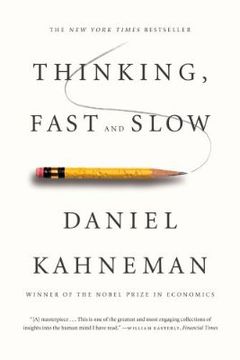
- NONFICTION BOOKS
- BEST NONFICTION 2023
- BEST NONFICTION 2024
- Historical Biographies
- The Best Memoirs and Autobiographies
- Philosophical Biographies
- World War 2
- World History
- American History
- British History
- Chinese History
- Russian History
- Ancient History (up to 500)
- Medieval History (500-1400)
- Military History
- Art History
- Travel Books
- Ancient Philosophy
- Contemporary Philosophy
- Ethics & Moral Philosophy
- Great Philosophers
- Social & Political Philosophy
- Classical Studies
- New Science Books
- Maths & Statistics
- Popular Science
- Physics Books
- Climate Change Books
- How to Write
- English Grammar & Usage
- Books for Learning Languages
- Linguistics
- Political Ideologies
- Foreign Policy & International Relations
- American Politics
- British Politics
- Religious History Books
- Mental Health
- Neuroscience
- Child Psychology
- Film & Cinema
- Opera & Classical Music
- Behavioural Economics
- Development Economics
- Economic History
- Financial Crisis
- World Economies
- Investing Books
- Artificial Intelligence/AI Books
- Data Science Books
- Sex & Sexuality
- Death & Dying
- Food & Cooking
- Sports, Games & Hobbies
- FICTION BOOKS
- BEST NOVELS 2024
- BEST FICTION 2023
- New Literary Fiction
- World Literature
- Literary Criticism
- Literary Figures
- Classic English Literature
- American Literature
- Comics & Graphic Novels
- Fairy Tales & Mythology
- Historical Fiction
- Crime Novels
- Science Fiction
- Short Stories
- South Africa
- United States
- Arctic & Antarctica
- Afghanistan
- Myanmar (Formerly Burma)
- Netherlands
- Kids Recommend Books for Kids
- High School Teachers Recommendations
- Prizewinning Kids' Books
- Popular Series Books for Kids
- BEST BOOKS FOR KIDS (ALL AGES)
- Ages Baby-2
- Books for Teens and Young Adults
- THE BEST SCIENCE BOOKS FOR KIDS
- BEST KIDS' BOOKS OF 2023
- BEST BOOKS FOR TEENS OF 2023
- Best Audiobooks for Kids
- Environment
- Best Books for Teens of 2023
- Best Kids' Books of 2023
- Political Novels
- New History Books
- New Historical Fiction
- New Biography
- New Memoirs
- New World Literature
- New Economics Books
- New Climate Books
- New Math Books
- New Philosophy Books
- New Psychology Books
- New Physics Books
- THE BEST AUDIOBOOKS
- Actors Read Great Books
- Books Narrated by Their Authors
- Best Audiobook Thrillers
- Best History Audiobooks
- Nobel Literature Prize
- Booker Prize (fiction)
- Baillie Gifford Prize (nonfiction)
- Financial Times (nonfiction)
- Wolfson Prize (history)
- Royal Society (science)
- Pushkin House Prize (Russia)
- Walter Scott Prize (historical fiction)
- Arthur C Clarke Prize (sci fi)
- The Hugos (sci fi & fantasy)
- Audie Awards (audiobooks)
Make Your Own List
Nonfiction Books » Philosophy Books
The best books on critical thinking, recommended by nigel warburton.

Thinking from A to Z by Nigel Warburton
Do you know your straw man arguments from your weasel words? Nigel Warburton , Five Books philosophy editor and author of Thinking from A to Z, selects some of the best books on critical thinking—and explains how they will help us make better-informed decisions and construct more valid arguments.
Interview by Cal Flyn , Deputy Editor
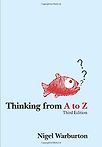
Calling Bullshit: The Art of Skepticism in a Data-Driven World by Carl Bergstrom & Jevin West
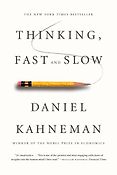
Thinking, Fast and Slow by Daniel Kahneman
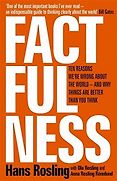
Factfulness: Ten Reasons We're Wrong About The World — And Why Things Are Better Than You Think by Hans Rosling
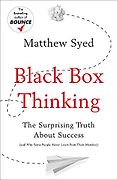
Black Box Thinking: The Surprising Truth About Success by Matthew Syed
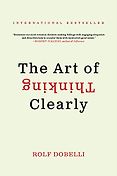
The Art of Thinking Clearly by Rolf Dobelli
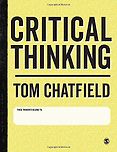
Critical Thinking: Your Guide to Effective Argument, Successful Analysis and Independent Study by Tom Chatfield
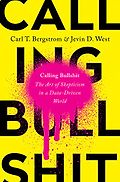
1 Calling Bullshit: The Art of Skepticism in a Data-Driven World by Carl Bergstrom & Jevin West
2 thinking, fast and slow by daniel kahneman, 3 factfulness: ten reasons we're wrong about the world — and why things are better than you think by hans rosling, 4 black box thinking: the surprising truth about success by matthew syed, 5 the art of thinking clearly by rolf dobelli, 6 critical thinking: your guide to effective argument, successful analysis and independent study by tom chatfield.
I t’s been just over two years since you explained to us what critical thinking is all about. Could you update us on any books that have come out since we first spoke?
Calling Bullshit by Carl Bergstrom and Jevin West started life as a course at the University of Washington. It is a book—a handbook really—written with the conviction that bullshit, particularly the kind that is circulated on the Internet, is damaging democracy , and that misinformation and disinformation can have very serious consequences. Bullshitters don’t care about truth. But truth is important, and this book shows why. It is focussed on examples from science and medicine, but ranges more widely too. It’s a lively read. It covers not just verbal bullshit, bullshit with statistics (particularly in relation to big data) and about causation, but also has a chapter on bullshit data visualisations that distract from the content they are about, or present that data in misleading ways. Like all good books on critical thinking this one includes some discussion of the psychology of being taken in by misleading contributions to public debate.
In How To Make the World Add Up , Tim Harford gives us ten rules for thinking better about numbers, together with a Golden Rule (‘Be curious’). Anyone who has listened to his long-running radio series More or Less will know how brilliant Tim is at explaining number-based claims – as I read it, I hallucinated Tim’s reassuring, sceptical, reasonable, amused, and patient voice. He draws on a rich and fascinating range of examples to teach us (gently) how not to be taken in by statistics and poorly supported claims. There is some overlap with Calling Bullshit , but they complement each other. Together they provide an excellent training in how not to be bamboozled by data-based claims.
[end of update. The original interview appears below]
___________________________
We’re here to talk about critical thinking. Before we discuss your book recommendations, I wonder if you would first explain: What exactly is critical thinking, and when should we be using it?
There’s a whole cluster of things that go under the label ‘critical thinking’. There’s what you might call formal logic , the most extreme case of abstractions. For example take the syllogism: if all men are mortal, and Socrates is a man, you can deduce from that structure of arguments that Socrates is mortal. You could put anything in the slots of ‘men,’ ‘Socrates,’ ‘mortal’, and whatever you put in, the argument structure remains valid. If the premises are true, the conclusion must be true. That kind of logic, which can be represented using letters and signs rather than words, has its place. Formal logic is a quasi-mathematical (some would say mathematical) subject.
But that’s just one element of critical thinking. Critical thinking is broader, though it encompasses that. In recent years, it’s been very common to include discussion of cognitive biases—the psychological mistakes we make in reasoning and the tendencies we have to think in certain patterns which don’t give us reliably good results. That’s another aspect: focussing on the cognitive biases is a part of what’s sometimes called ‘informal logic’, the sorts of reasoning errors that people make, which can be described as fallacious. They’re not, strictly speaking, logical fallacies, always. Some of them are simply psychological tendencies that give us unreliable results.
The gambler’s fallacy is a famous one: somebody throwing a die that isn’t loaded has thrown it three times without getting a six, and then imagines that, by some kind of law of averages, the fourth time they’re more likely to get a six, because they haven’t yet got one yet. That’s just a bad kind of reasoning, because each time that you roll the dice, the odds are the same: there’s a one in six chance of throwing a six. There’s no cumulative effect and a dice doesn’t have a memory. But we have this tendency, or certainly gamblers often do, to think that somehow the world will even things out and give you a win if you’ve had a series of losses. That’s a kind of informal reasoning error that many of us make, and there are lots of examples like that.
I wrote a little book called Thinking from A to Z which was meant to name and explain a whole series of moves and mistakes in thinking. I included logic, some cognitive biases, some rhetorical moves, and also (for instance) the topic of pseudo-profundity, whereby people make seemingly deep statements that are in fact shallow. The classical example is to give a seeming paradox—to say, for example ‘knowledge is just a kind of ignorance,’ or ‘virtue is only achieved through vice.’ Actually, that’s just a rhetorical trick, and once you see it, you can generate any number of such ‘profundities’. I suppose that would fall under rhetoric, the art of persuasion: persuading people that you are a deeper thinker than you are. Good reasoning isn’t necessarily the best way to persuade somebody of something, and there are many devious tricks that people use within discussion to persuade people of a particular position. The critical thinker is someone who recognises the moves, can anatomise the arguments, and call them to attention.
So, in answer to your question: critical thinking is not just pure logic . It’s a cluster of things. But its aim is to be clear about what is being argued, what follows from the given evidence and arguments, and to detect any cognitive biases or rhetorical moves that may lead us astray.
Many of the terms you define and illustrate in Thinking from A to Z— things like ‘straw man’ arguments and ‘weasel words’—have been creeping into general usage. I see them thrown around on Twitter. Do you think that our increased familiarity with debate, thanks to platforms like Twitter, has improved people’s critical thinking or made it worse?
I think that improving your critical thinking can be quite difficult. But one of the ways of doing it is to have memorable labels, which can describe the kind of move that somebody’s making, or the kind of reasoning error, or the kind of persuasive technique they’re using.
For example, you can step back from a particular case and see that somebody’s using a ‘weak analogy’. Once you’re familiar with the notion of a weak analogy, it’s a term that you can use to draw attention to a comparison between two things which aren’t actually alike in the respects that somebody is implying they are. Then the next move of a critical thinker would be to point out the respects in which this analogy doesn’t hold, and so demonstrate how poor it is at supporting the conclusion provided. Or, to use the example of weasel words—once you know that concept, it’s easier to spot them and to speak about them.
Social media, particularly Twitter, is quite combative. People are often looking for critical angles on things that people have said, and you’re limited in words. I suspect that labels are probably in use there as a form of shorthand. As long as they’re used in a precise way, this can be a good thing. But remember that responding to someone’s argument with ‘that’s a fallacy’, without actually spelling out what sort of fallacy it is supposed to be, is a form of dismissive rhetoric itself.
There are also a huge number of resources online now which allow people to discover definitions of critical thinking terms. When I first wrote Thinking from A to Z , there weren’t the same number of resources available. I wrote it in ‘A to Z’ form, partly just as a fun device that allows for lots of cross references, but partly because I wanted to draw attention to the names of things. Naming the moves is important.
“People seem to get a kick out of the idea of sharing irrelevant features—it might be a birthday or it might be a hometown—with somebody famous. But so what?”
The process of writing the book improved my critical thinking quite a lot, because I had to think more precisely about what particular terms meant and find examples of them that were unambiguous. That was the hardest thing, to find clear-cut examples of the various moves, to illustrate them. I coined some of the names myself: there’s one in there which is called the ‘Van Gogh fallacy,’ which is the pattern of thought when people say: ‘Well, Van Gogh had red hair, was a bit crazy, was left-handed, was born on the 30th of March, and, what do you know, I share all those things’—which I do happen to do—‘and therefore I must be a great genius too.’
I love that. Well, another title that deals with psychological biases is the first critical thinking book that you want to discuss, Daniel Kahneman’s Thinking Fast and Slow . Why did you choose this one?
This is an international bestseller by the Nobel Prize-winning behavioural economist—although he’s principally a psychologist—Daniel Kahneman. He developed research with Amos Tversky, who unfortunately died young. I think it would have been a co-written book otherwise. It’s a brilliant book that summarizes their psychological research on cognitive biases (or its patterns of thinking) which all of us are prone to, which aren’t reliable.
There is a huge amount of detail in the book. It summarizes a lifetime of research—two lifetimes, really. But Kahneman is very clear about the way he describes patterns of thought: as using either ‘System One’ or ‘System Two.’ System One is the fast, intuitive, emotional response to situations where we jump to a conclusion very quickly. You know: 2 + 2 is 4. You don’t think about it.
System Two is more analytical, conscious, slower, methodical, deliberative. A more logical process, which is much more energy consuming. We stop and think. How would you answer 27 × 17? You’d have to think really hard, and do a calculation using the System Two kind of thinking. The problem is that we rely on this System One—this almost instinctive response to situations—and often come out with bad answers as a result. That’s a framework within which a lot of his analysis is set.
I chose this book because it’s a good read, and it’s a book you can keep coming back to—but also because it’s written by a very important researcher in the area. So it’s got the authority of the person who did the actual psychological research. But it’s got some great descriptions of the phenomena he researches, I think. Anchoring, for instance. Do you know about anchoring?
I think so. Is that when you provide an initial example that shapes future responses? Perhaps you’d better explain it.
That’s more or less it. If you present somebody with an arbitrary number, psychologically, most people seem prone when you ask them a question to move in the direction of that number. For instance, there’s an experiment with judges. They were being asked off the cuff: What would be a good sentence for a particular crime, say shoplifting? Maybe they’d say it would be a six-month sentence for a persistent shoplifter.
But if you prime a judge by giving an anchoring number—if you ask, ‘Should the sentence for shoplifting be more than nine months?’ They’re more like to say on average that the sentence should be eight months than they would have been otherwise. And if you say, ‘Should it be punished by a sentence of longer than three months?’ they’re more likely to come down in the area of five , than they would otherwise.
So the way you phrase a question, by introducing these numbers, you give an anchoring effect. It sways people’s thinking towards that number. If you ask people if Gandhi was older than 114 years old when he died, people give a higher answer than if you just asked them: ‘How old was Gandhi when he died?’
I’ve heard this discussed in the context of charity donations. Asking if people will donate, say, £20 a month returns a higher average pledge than asking for £1 a month.
People use this anchoring technique often with selling wine on a list too. If there’s a higher-priced wine for £75, then somehow people are more drawn to one that costs £40 than they would otherwise have been. If that was the most expensive one on the menu, they wouldn’t have been drawn to the £40 bottle, but just having seen the higher price, they seem to be drawn to a higher number. This phenomenon occurs in many areas.
And there are so many things that Kahneman covers. There’s the sunk cost fallacy, this tendency that we have when we give our energy, or money, or time to a project—we’re very reluctant to stop, even when it’s irrational to carry on. You see this a lot in descriptions of withdrawal from war situations. We say: ‘We’ve given all those people’s lives, all that money, surely we’re not going to stop this campaign now.’ But it might be the rational thing to do. All that money being thrown there, doesn’t mean that throwing more in that direction will get a good result. It seems that we have a fear of future regret that outweighs everything else. This dominates our thinking.
Support Five Books
Five Books interviews are expensive to produce. If you're enjoying this interview, please support us by donating a small amount .
What Kahneman emphasizes is that System One thinking produces overconfidence based on what’s often an erroneous assessment of a situation. All of us are subject to these cognitive biases, and that they’re extremely difficult to remove. Kahneman’s a deeply pessimistic thinker in some respects; he recognizes that even after years of studying these phenomena he can’t eliminate them from his own thinking. I interviewed him for a podcast once , and said to him: ‘Surely, if you teach people critical thinking, they can get better at eliminating some of these biases.’ He was not optimistic about that. I’m much more optimistic than him. I don’t know whether he had empirical evidence to back that up, about whether studying critical thinking can increase your thinking abilities. But I was surprised how pessimistic he was.
Interesting.
Unlike some of the other authors that we’re going to discuss . . .
Staying on Kahneman for a moment, you mentioned that he’d won a Nobel Prize, not for his research in psychology per se but for his influence on the field of economics . His and Tversky’s ground-breaking work on the irrationality of human behaviour and thinking forms the spine of a new field.
Let’s look at Hans Rosling’s book next, this is Factfulness . What does it tell us about critical thinking?
Rosling was a Swedish statistician and physician, who, amongst other things, gave some very popular TED talks . His book Factfulness , which was published posthumously—his son and daughter-in-law completed the book—is very optimistic, so completely different in tone from Kahneman’s. But he focuses in a similar way on the ways that people make mistakes.
We make mistakes, classically, in being overly pessimistic about things that are changing in the world. In one of Rosling’s examples he asks what percentage of the world population is living on less than $2 a day. People almost always overestimate that number, and also the direction in which things are moving, and the speed in which they’re moving. Actually, in 1966, half of the world’s population was in extreme poverty by that measure, but by 2017 it was only 9%, so there’s been a dramatic reduction in global poverty. But most people don’t realise this because they don’t focus on the facts, and are possibly influenced by what they may have known about the situation in the 1960s.
If people are asked what percentage of children are vaccinated against common diseases, they almost always underestimate it. The correct answer is a very high proportion, something like 80%. Ask people what the life expectancy for every child born today is, the global average, and again they get it wrong. It’s over 70 now, another surprisingly high figure. What Rosling’s done as a statistician is he’s looked carefully at the way the world is.
“Pessimists tend not to notice changes for the better”
People assume that the present is like the past, so when they’ve learnt something about the state of world poverty or they’ve learnt about health, they often neglect to take a second reading and see the direction in which things are moving, and the speed with which things are changing. That’s the message of this book.
It’s an interesting book; it’s very challenging. It may be over-optimistic. But it does have this startling effect on the readers of challenging widely held assumptions, much as Steven Pinker ‘s The Better Angels of Our Nature has done. It’s a plea to look at the empirical data, and not just assume that you know how things are now. But pessimists tend not to notice changes for the better. In many ways, though clearly not in relation to global warming and climate catastrophe, the statistics are actually very good for humanity.
That’s reassuring.
So this is critical thinking of a numerical, statistical kind. It’s a bit different from the more verbally-based critical thinking that I’ve been involved with. I’m really interested to have my my assumptions challenged, and Factfulness is a very readable book. It’s lively and thought-provoking.
Coming back to what you said about formal logic earlier, statistics is another dense subject which needs specialist training. But it’s one that has a lot in common with critical thinking and a lot of people find very difficult—by which I mean, it’s often counter-intuitive.
One of the big problems for an ordinary reader looking at this kind of book is that we are not equipped to judge the reliability of his sources, and so the reliability of the conclusions that he draws. I think we have to take it on trust and authority and hope that, given the division of intellectual labour, there are other statisticians looking at his work and seeing whether he was actually justified in drawing the conclusions that he drew. He made these sorts of public pronouncements for a long time and responded to critics.
But you’re right that there is a problem here. I believe that most people can equip themselves with tools for critical thinking that work in everyday life. They can learn something about cognitive biases; they can learn about reasoning and rhetoric, and I believe that we can put ourselves as members of a democracy in a position where we think critically about the evidence and arguments that are being presented to us, politically and in the press. That should be open to all intelligent people, I think. It is not a particularly onerous task to equip yourself with a basic tools of thinking clearly.
Absolutely. Next you wanted to talk about Five Books alumnus Matthew Syed ‘s Black Box Thinking .
Yes, quite a different book. Matthew Syed is famous as a former international table tennis player, but—most people probably don’t know this—he has a first-class degree in Philosophy, Politics and Economics (PPE) from Oxford as well.
This book is really interesting. It’s an invitation to think differently about failure. The title, Black Box Thinking, comes from the black boxes which are standardly included in every passenger aircraft, so that if an accident occurs there’s a recording of the flight data and a recording of the audio communications as the plane goes down. When there’s a crash, rescuers always aim to recover these two black boxes. The data is then analysed, the causes of the crash, dissected and scrutinized, and the information shared across the aeronautic industry and beyond.
Obviously, everybody wants to avoid aviation disasters because they’re so costly in terms of loss of human life. They undermine trust in the whole industry. There’s almost always some kind of technical or human error that can be identified, and everybody can learn from particular crashes. This is a model of an industry where, when there is a failure, it’s treated as a very significant learning experience, with the result that airline travel has become a very safe form of transport.
This contrasts with some other areas of human endeavour, such as, sadly, much of healthcare, where the information about failures often isn’t widely shared. This can be for a number of reasons: there may be a fear of litigation—so if a surgeon does something unorthodox, or makes a mistake, and somebody as a result doesn’t survive an operation, the details of exactly what happened on the operating table will not be widely shared, typically, because there is this great fear of legal comeback.
The hierarchical aspects of the medical profession may have a part to play here, too. People higher up in the profession are able to keep a closed book, and not share their mistakes with others, because it might be damaging to their careers for people to know about their errors. There has been, historically anyway, a tendency for medical negligence and medical error, to be kept very quiet, kept hidden, hard to investigate.
“You can never fully confirm an empirical hypothesis, but you can refute one by finding a single piece of evidence against it”
What Matthew Syed is arguing is that we need to take a different attitude to failure and see it as the aviation industry does. He’s particularly interested in this being done within the healthcare field, but more broadly too. It’s an idea that’s come partly from his reading of the philosopher Karl Popper, who described how science progresses not by proving theories true, but by trying to disprove them. You can never fully confirm an empirical hypothesis, but you can refute one by finding a single piece of evidence against it. So, in a sense, the failure of the hypothesis is the way by which science progresses: conjecture followed by refutation, not hypothesis followed by confirmation.
As Syed argues, we progress in all kinds of areas is by making mistakes. He was a superb table-tennis player, and he knows that every mistake that he made was a learning experience, at least potentially, a chance to improve. I think you’d find the same attitude among musicians, or in areas where practitioners are very attentive to the mistakes that they make, and how those failures can teach them in a way that allows them to make a leap forward. The book has a whole range of examples, many from industry, about how different ways of thinking about failure can improve the process and the output of particular practices.
When we think of bringing up kids to succeed, and put emphasis on avoiding failure, we may not be helping them develop. Syed’s argument is that we should make failure a more positive experience, rather than treat it as something that’s terrifying, and always to be shied away from. If you’re trying to achieve success, and you think, ‘I have to achieve that by accumulating other successes,’ perhaps that’s the wrong mindset to achieve success at the higher levels. Perhaps you need to think, ‘Okay, I’m going to make some mistakes, how can I learn from this, how can I share these mistakes, and how can other people learn from them too?’
That’s interesting. In fact, just yesterday I was discussing a book by Atul Gawande, the surgeon and New Yorker writer, called The Checklist Manifesto . In that, Gawande also argues that we should draw from the success of aviation, in that case, the checklists that they run through before take-off and so on, and apply it to other fields like medicine. A system like this is aiming to get rid of human error, and I suppose that’s what critical thinking tries to do, too: rid us of the gremlins in machine.
Well, it’s also acknowledging that when you make an error, it can have disastrous consequence. But you don’t eliminate errors just by pretending they didn’t occur. With the Chernobyl disaster , for instance, there was an initial unwillingness to accept the evidence in front of people’s eyes that a disaster had occurred, combined with a fear of being seen to have messed up. There’s that tendency to think that everything’s going well, a kind of cognitive bias towards optimism and a fear of being responsible for error, but it’s also this unwillingness to see that in certain areas, admission of failure and sharing of the knowledge that mistakes have occurred is the best way to minimize failure in the future.
Very Beckettian . “Fail again. Fail better.”
Absolutely. Well, shall we move onto to Rolf Dobelli’s 2013 book, The Art of Thinking Clearly ?
Yes. This is quite a light book in comparison with the others. It’s really a summary of 99 moves in thinking, some of them psychological, some of them logical, some of them social. What I like about it is that he uses lots of examples. Each of the 99 entries is pretty short, and it’s the kind of book you can dip into. I would think it would be very indigestible to read it from cover to cover, but it’s a book to keep going back to.
I included it because it suggests you can you improve your critical thinking by having labels for things, recognising the moves, but also by having examples which are memorable, through which you can learn. This is an unpretentious book. Dobelli doesn’t claim to be an original thinker himself; he’s a summariser of other people’s thoughts. What he’s done is brought lots of different things together in one place.
Just to give a flavour of the book: he’s got a chapter on the paradox of choice that’s three pages long called ‘Less is More,’ and it’s the very simple idea that if you present somebody with too many choices, rather than freeing them and improving their life and making them happier, it wastes a lot of their time, even destroys the quality of their life.
“If you present somebody with too many choices, it wastes a lot of their time”
I saw an example of this the other day in the supermarket. I bumped into a friend who was standing in front of about 20 different types of coffee. The type that he usually buys wasn’t available, and he was just frozen in this inability to make a decision between all the other brands that were in front of him. If there’d only been one or two, he’d have just gone for one of those quickly.
Dobelli here is summarising the work of psychologist Barry Schwartz who concluded that generally, a broader selection leads people to make poorer decisions for themselves. We think going into the world that what we need is more choice, because that’ll allow us to do the thing we want to do, acquire just the right consumable, or whatever. But perhaps just raising that possibility, the increased number of choices will lead us to make poorer choices than if we had fewer to choose between.
Now, that’s the descriptive bit, but at the end of this short summary, he asks ‘So what can you do about this practically?’ His answer is that you should think carefully about what you want before you look at what’s on offer. Write down the things you think you want and stick to them. Don’t let yourself be swayed by further choices. And don’t get caught up in a kind of irrational perfectionism. This is not profound advice, but it’s stimulating. And that’s typical of the book.
You can flip through these entries and you can take them or leave them. It’s a kind of self-help manual.
Oh, I love that. A critical thinking self-help book .
It really is in that self-help genre, and it’s nicely done. He gets in and out in a couple of pages for each of these. I wouldn’t expect this to be on a philosophy reading list or anything like that, but it’s been an international bestseller. It’s a clever book, and I think it’s definitely worth dipping into and coming back to. The author is not claiming that it is the greatest or most original book in the world; rather, it’s just a book that’s going to help you think clearly. That’s the point.
Absolutely. Let’s move to the final title, Tom Chatfield’s Critical Thinking: Your Guide to Effective Argument, Successful Analysis and Independent Study . We had Tom on Five Books many moons ago to discuss books about computer games . This is rather different. What makes it so good?
Well, this is a different kind of book. I was trying to think about somebody reading this interview who wants to improve their thinking. Of the books I’ve discussed, the ones that are most obviously aimed at that are Black Box Thinking , the Dobelli book, and Tom Chatfield’s Critical Thinking . The others are more descriptive or academic. But this book is quite a contrast with the Dobelli’s. The Art of Thinking Clearly is a very short and punchy book, while Tom’s is longer, and more of a textbook. It includes exercises, with summaries in the margins, it’s printed in textbook format. But that shouldn’t put a general reader off, because I think it’s the kind of thing you can work through yourself and dip into.
It’s clearly written and accessible, but it is designed to be used on courses as well. Chatfield teaches a point, then asks you to test yourself to see whether you’ve learnt the moves that he’s described. It’s very wide-ranging: it includes material on cognitive biases as well as more logical moves and arguments. His aim is not simply to help you think better, and to structure arguments better, but also to write better. It’s the kind of book that you might expect a good university to present to the whole first year intake, across a whole array of courses. But I’m including it here more as a recommendation for the autodidact. If you want to learn to think better: here is a course in the form of a book. You can work through this on your own.
It’s a contrast with the other books as well, so that’s part of my reason for putting it in there, so there’s a range of books on this list.
Definitely. I think Five Books readers, almost by definition, tend towards autodidacticism, so this is a perfect book recommendation. And, finally, to close: do you think that critical thinking is something that more people should make an effort to learn? I suppose the lack of it might help to explain the rise of post-truth politics.
It’s actually quite difficult to teach critical thinking in isolation. In the Open University’s philosophy department, when I worked there writing and designing course materials, we decided in the end to teach critical thinking as it arose in teaching other content: by stepping back from time to time to look at the critical thinking moves being made by philosophers, and the critical thinking moves a good student might make in response to them. Pedagogically, that often works much better than attempting to teach critical thinking as a separate subject in isolation.
This approach can work in scientific areas too. A friend of mine has run a successful university course for zoologists on critical thinking, looking at correlation and cause, particular types of rhetoric that are used in write ups and experiments, and so on, but all the time driven by real examples from zoology. If you’ve got some subject matter, and you’ve got examples of people reasoning, and you can step back from it, I think this approach can work very well.
But in answer to your question, I think that having some basic critical thinking skills is a prerequisite of being a good citizen in a democracy . If you are too easily swayed by rhetoric, weak at analysing arguments and the ways that people use evidence, and prone to all kinds of biases that you are unaware of, how can you engage politically? So yes, all of us can improve our critical thinking skills, and I do believe that that is an aspect of living the examined life that Socrates was so keen we all should do.
December 4, 2020
Five Books aims to keep its book recommendations and interviews up to date. If you are the interviewee and would like to update your choice of books (or even just what you say about them) please email us at [email protected]
Nigel Warburton
Nigel Warburton is a freelance philosopher, writer and host of the podcast Philosophy Bites . Featuring short interviews with the world's best philosophers on bite-size topics, the podcast has been downloaded more than 40 million times. He is also our philosophy editor here at Five Books , where he has been interviewing other philosophers about the best books on a range of philosophy topics since 2013 (you can read all the interviews he's done here: not all are about philosophy). In addition, he's recommended books for us on the best introductions to philosophy , the best critical thinking books, as well as some of the key texts to read in the Western canon . His annual recommendations of the best philosophy books of the year are among our most popular interviews on Five Books . As an author, he is best known for his introductory philosophy books, listed below:
We ask experts to recommend the five best books in their subject and explain their selection in an interview.
This site has an archive of more than one thousand seven hundred interviews, or eight thousand book recommendations. We publish at least two new interviews per week.
Five Books participates in the Amazon Associate program and earns money from qualifying purchases.
© Five Books 2024
Best Books Hub
Reviews of The Best Books on Every Subject
20 Best Books on Critical Thinking (2022 Review)
September 16, 2020 by James Wilson
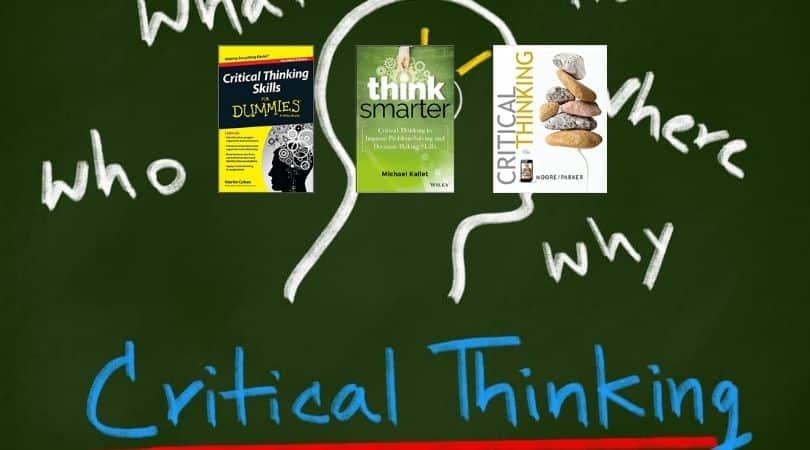
DISCLOSURE: This post may contain affiliate links, meaning when you click the links and make a purchase, I receive a commission. As an Amazon Associate I earn from qualifying purchases.
Critical thinking is a skill/mindset that enables a person to think logically. Critical thinking is a vital necessity for everyone these days who want to perform exceptionally. No matter what field of life you are in, let it be a student, a teacher, an athlete or a corporate employee. There are high chances that you will need to enable critical thinking to find a noteworthy solution to your problems and be able to move forward effectively.
To enable critical thinking, there are certain things involved. These include evaluating evidence, weighing the chances, analysing assumptions and more. Once you start your journey towards critical thinking, you start to take the next steps automatically. It is a journey that takes you from assumptions to the realities that are possible.
What are the Best Critical Thinking Books to read?

With effective critical thinking skills, it is impossible for you to be fooled by anyone. You can read one’s intentions right away. You can even see what other people cannot, based on evidence and argument.
If you are looking to grow respective critical thinking skills, and want to learn it quick. We have compiled a list of books that you can read the review for. This will enable you to choose the right book on critical thinking for your learning journey.
Best Books on Critical Thinking: Our Top 20 Picks
Here are some of the best critical thinking books that you can consider to expand your knowledge on the subject:
1. Critical Thinking Skills for Dummies
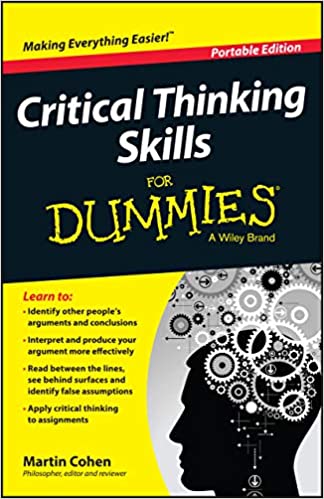
Of Course, we all are already aware of the “For Dummies” series. For those who are not, this series presents an absolute and definitive guide for the beginners. With the help of this series, everyone can effectively learn the skills from the beginner level to advance. If you have little to zero knowledge about critical thinking and want to learn, this is the book for you.
The book has been written by Martin Cohen. It serves the purpose by enabling its readers to get access to the most comprehensible and easy-to-read narrative on critical thinking. The book provides you with access to several tools that you can activate to develop reflective thinking. There is also deep insight from the beginners’ level on how you can brainstorm to generate insights.
- Authors : Martin Cohen (Author)
- Publisher : For Dummies; 1st Edition (May 4, 2015)
- Pages : 376 pages
2. Think Smarter: Critical thinking to improve problem-solving and decision-making skills
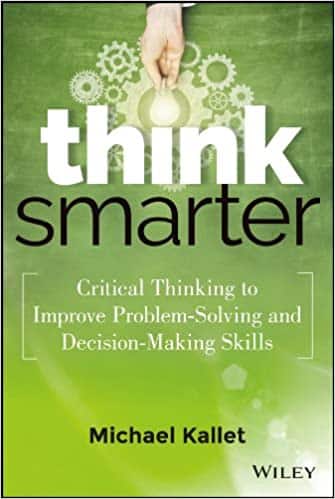
Critical thinking is a necessary skill for all that are studying, teaching, or working in any part of life. It enables you to look at the flaws in a system, a story, a program, a project or virtually anything so you can effectively improve it.
This book is all about using critical thinking to improve problem-solving and decision-making skills. Written by Michael Kallet, the book presents valuable arguments that you can use to weigh your options, find the flaws and improve your critical thinking skills. This book goes beyond the concepts and is about the examples of real-world scenarios that will not only serve as a clear piece of understanding for you but also help you with the exercise and practice of such skills. The book has over 25 tools for critical thinking with real-world examples.
- Authors : Michael Kallet (Author)
- Publisher : Wiley; 1st Edition (April 7, 2014)
- Pages : 240 pages
3. Critical Thinking (10th Edition)

There are levels of Critical thinking classified with the understanding and utilization level of the students. The course enables students to think logically and critically not only in the class but in the real-world to make effective decisions.
It will not be wrong to call this book the most taught textbook on critical thinking subjects. The book is written by Brooke Noel Moore and Richard Parker. It presents the students with a buffet of examples and exercises that they can perform within or outside the class to enable their critical thinking skills and do well in their life. The book presents a highly understandable version of critical thinking in Moore’s famous, engaging narrative.
- Authors : Brooke Noel Moore (Author), Richard Parker (Author)
- Publisher : McGraw-Hill; 10th Edition (January 1, 2012)
- Pages : 576 pages
4. Critical Thinking: Tools for taking charge of your learning and your life (3rd Edition)
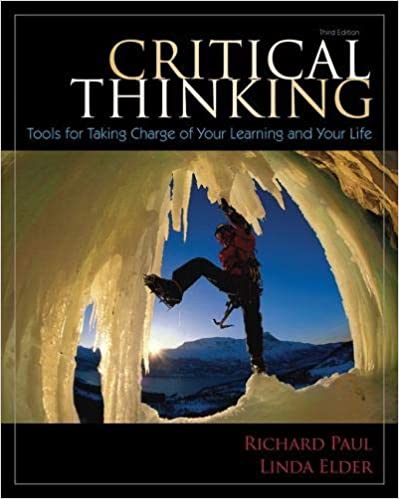
Critical thinking has become highly popular in the last couple of decades. It enables you with an approach of integration and making decisions based on viable arguments and evidence instead of hallow words. The sixth sense is a thing, but weighing your arguments and the right evidence laying in front of you is what critical thinking enables you to do.
Written by two experts of the field Richard Paul, and Linda Elder, this book presents its readers with a huge list of interactive tools that they can learn to utilize in their learning journey towards critical thinking. This book is focused on a comprehensive and practical approach to critical thinking that is to be used in everyday life. With this book, you can get your hands on some new diagrams that will enhance your decision-making skills.
- Authors : Richard Paul (Author), Linda Elder (Author)
- Publisher : Pearson; 3rd Edition (November 20, 2019)
- Pages : 528 pages
5. The power of Critical Thinking: Effective Reasoning about Ordinary and Extraordinary claims
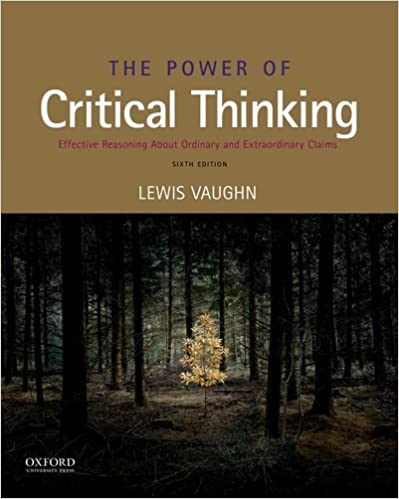
Critical thinking is a power that takes you from assuming to believing. It enables you to understand the truth laying behind the valid evidences that someone is trying to hide it from you. It is a skill to believe in the true version of events instead of hallow words.
Written by Lewis Vaughn, this book is the right read for you if you are looking to enable and use critical thinking in your daily routine. The book enables you access to a wide range of tools you need to apply for critical thinking in daily life. It provides a perspective understandable and applicable by students, teachers, corporate workers, and normal people alike. Including scientific reasoning, evidence, authority, and visual reasoning this book can enable you to get the skills of critical thinking in a commendable manner.
- Authors : Lewis Vaughn (Author)
- Publisher : Oxford University Press; 6th Edition (September 20, 2018)
- Pages : 600 pages
6. Critical Thinking, Reading and Writing: A Brief Guide to Argument (9th Edition)
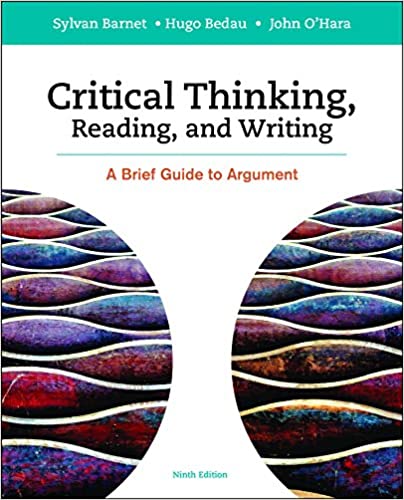
If you are a reader, student or an individual with a job requirement of reading and getting the right information. This book is the right guide for you. This book is a comprehensive, compact guide for all those who want to learn the right skillset to weigh arguments based on validity and authority.
The book presents you with a number of real-life examples that will enable you to understand the fundamentals of skimming through the information and improve your analysis to reach the right conclusion. Written by Sylvan Barnet, Hugo Bedau, and John O’Hara this book has all the information and guidance to enable critical thinking and create valid arguments based on facts and figures.
- Authors : Sylvan Barnet (Author), Hugo Bedau (Author), John O’Hara (Author)
- Publisher : Bedford/St. Martin’s; Ninth Edition (October 4, 2016)
7. Critical Thinking (11th Edition)
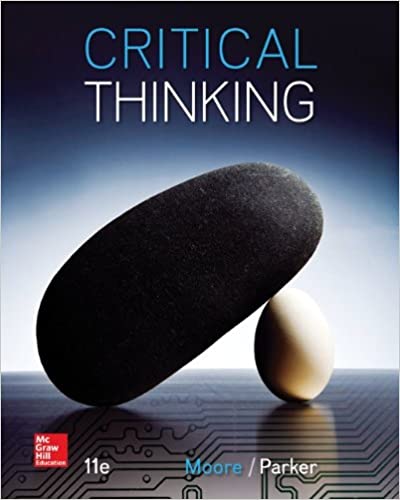
Critical thinking is being taught as a course in most schools. It enables the students to make the right decisions in life effectively and to weigh the chances for their success. Critical thinking is a necessary tool for all who want to survive in this highly competitive world and outperform their selves every day.
It will not be wrong to call this book a Textbook. Written by Brooke Noel Moore, and Richard Parker this book contains a unique and interactive approach towards learning the skills required to enable critical thinking. There are real-world applications that enable the students and instructors alike to understand the concepts better. The book is a great help for not only scoring grades in the course but also being able to use the concepts and learnings effectively in daily routine.
- Publisher : McGraw-Hill Education; 11th Edition (January 15, 2014)
- Pages : 512 pages
8. Models for Critical Thinking: A fundamental guide to effective decision making, deep analysis, Intelligent reasoning, and independent thinking
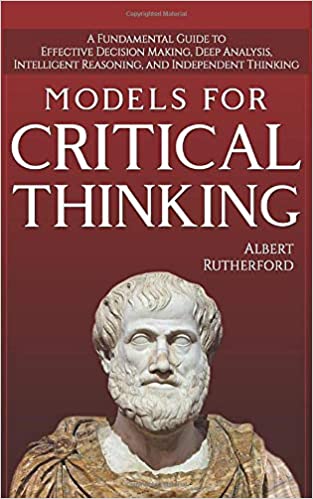
Critical thinking has benefits far more reasonable and useful beyond the academic career. While there are no doubts about the importance of critical thinking for educational purposes. There are also a number of other applications that you can use critical thinking to analyse and understand the process of certain things going around.
Written by Albert Rutherford, this book is a marvel of critical thinking. With this book, you can get your hands on some advance concepts and techniques used to enable critical thinking. And the best part is, there are also numerous applications including that will enable you to enhance your critical thinking skills. The book contains elaborative insight on how you can apply logic to analyse and everyday events around you and use that to save yourself from getting tricked or manipulated.
- Authors : Albert Rutherford (Author)
- Publisher : Independently published (October 17, 2018)
- Pages : 278 pages
9. LOGITICA: Improve your critical thinking and problem-solving skills: the brain behind the brain
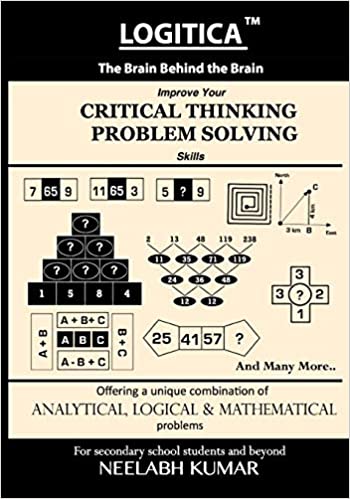
Problem-solving skills rely greatly on critical thinking. To understand an error in your work and to effectively eliminate that requires a deeper sense of understanding towards the comprehension of the reasons that may have caused the error and how you can improve.
This book is based on logistical facts and figures rather than assumptions, that could have been true. Logics presents you with a more accurate opportunity and approach towards improving our problem-solving skills. Written by Neelabh Kumar, this book is a right guide for all those who want to understand an in-depth perspective of what may have caused an error and how you can eliminate the possibility of recurrence through enhances critical thinking skills.
- Authors : Neelabh Kumar (Author)
- Publisher : Independently published (January 8, 2019)
- Pages : 329 pages
10. A workbook for arguments, Second Edition: A complete course in critical thinking
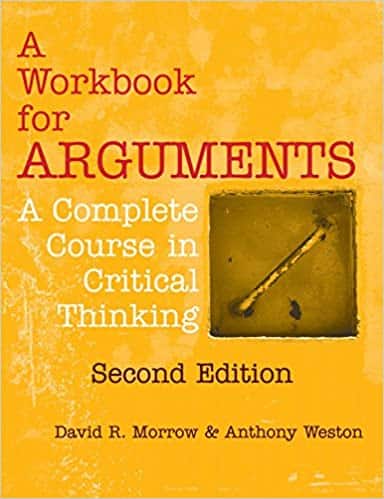
This second edition of a highly popular guide on critical thinking contains all major improvements that back the fundamentals of the first edition. However, advancement and revelations are continued and this book is the right example of moving forward in your journey of learning critical thinking efficiently.
The book is written by David R. Morrow and Anthony Weston. In this book, they present an understandable and easy to imply narrative towards critical thinking. The book contains elaborative information on all the exercises of critical thinking. Also, it has improved and enhanced version of scientific reasoning that was discussed in earlier edition. This is a perfect workbook for all the students and those who are looking to improve their critical thinking skills.
- Authors : David R. Morrow (Author), Anthony Weston (Author)
- Publisher : Hackett Publishing Company, Inc.; Second Edition (November 1, 2015)
11. From Critical Thinking to Argument: A Portable Guide (5th Edition)
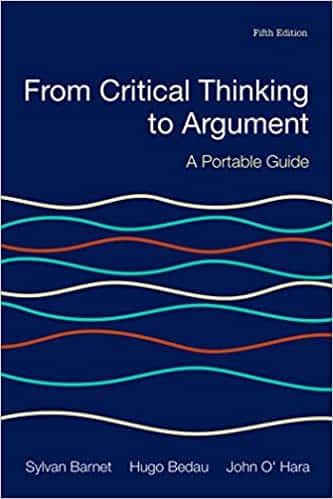
Critical Thinking is a valuable skill for all, especially the writers. While other people have to self-analyse and use the information for their own improvements and apply them their selves. Writers are required to craft the arguments based on the information and their critical thinking skills.
This book is written by Sylvan Barnet, Hugo Bedau, and John O’Hara. It is a handbook that is compact and has a precise narrative to not only enhance critical thinking skills but also to improve the knowledge. The book contains practical exercises on how one can effectively craft the arguments based on facts, figures, and assumptions that might come true.
- Publisher : Bedford/St. Martin’s; Fifth Edition (December 22, 2016)
- Pages : 432 pages
12. Critical Thinking: The effective Beginner’s guide to master logical facilities using a scientific approach and improve your rational thinking skills with problem-solving tools to make better decisions
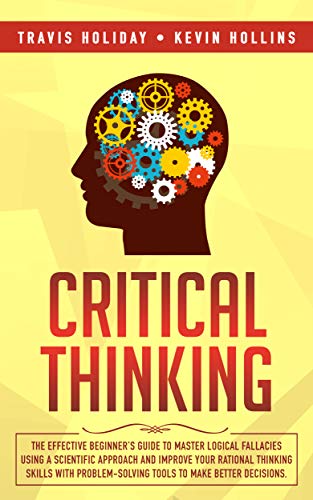
Thinking deep and analytically requires you to work on your thinking process and analyse the information effectively. These are some skills that require you to work on yourself and the way you look at things. It includes changing your narrative towards the things that might be causing hindrance in your thinking process and clouding your judgment.
The book is written & published by Travis Holiday, and Kevin Hollins. This is the right guide for all the beginners to start thinking rationally and based on the facts that are affecting things around you. There are indicators that allow you to see the reality hidden behind things and words with absolute meaning. However, there are deeper practices along the way and you must understand those to start thinking effectively the right possible way. This book is the right guide that will take you from beginner to master-level critical thinking approach through its easy to understand and imply a narrative.
- Authors : Travis Holiday (Author), Kevin Hollins (Author)
- Publisher : Independently published (September 18, 2019)
- Pages : 210 pages
13. Critical Thinking (12th Edition)
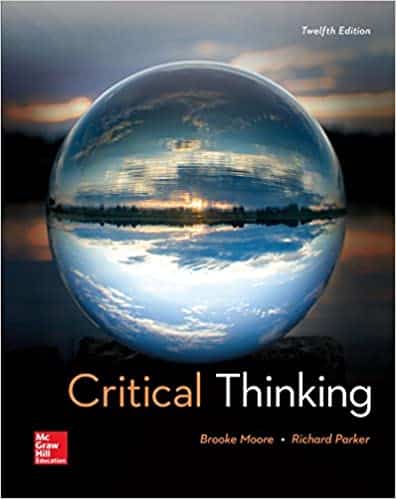
Researches are being conducted daily on critical thinking. With each passing day, there are new and more effective concepts that are being discovered and proven right. These concepts are not a denial to older ones but strengthen their validity. If you are looking to get your hands on some of the latest concepts of Critical thinking, this is the right book for you.
Written by Brooke Noel Moore and Richard Parker, this book presents you with the most up-to-date concepts of critical thinking. It has an improved narrative and hundreds of latest examples based on real-world scenarios that will enable you to think critically and improve your decision-making skills in every part of your life.
- Publisher : McGraw-Hill Higher Education; 12th Edition (October 25, 2016)
14. The basics of Critical Thinking
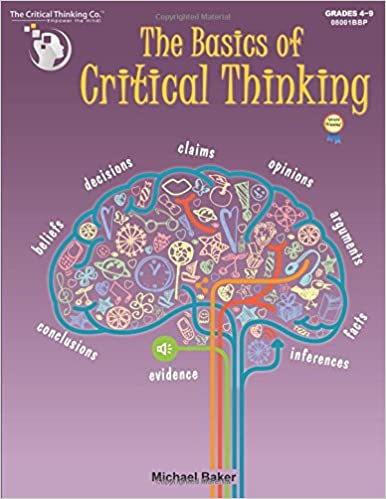
Young minds are more interesting and they are more curious. Curiosity is considered the first step toward critical thinking. It is believed that habits made in early age stays with you for life. Critical thinking is more of a habit, a lifestyle than a skill set that you can earn over time. Hence, this book presents a version of basic tools that can enable younger minds to get hold of the basics of critical thinking.
The book follows simple English with a narrative that is easier to understand for children. To increase interest, this book contains a colourful and image-based description of things. The book is written by Michael Baker. While it is intended for younger people, that does not mean adults cannot read it. For all those who want to learn the fundamentals of critical thinking and to enable their selves to analyse things effectively, this book is a worthy read.
- Authors : Michael Baker (Author), Children’s Books – Educational (Introduction)
- Publisher : The Critical Thinking Co. (January 1, 2015)
- Pages : 152 pages
15. Tools of Critical Thinking: Meta thoughts of psychology, second edition.
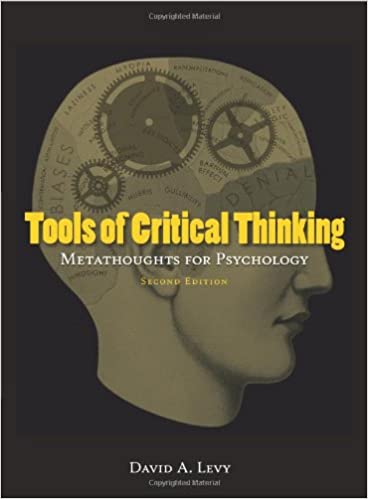
While there are other books that focus on basics and how you can start analysing things and events to think critically. This book is focused more on in-depth analysis and understanding of psychology involved behind decision making and critical thinking approach.
Written by David A. Levy, this book presents a highly understandable narrative and approach towards thinking critically and to understand how human psychology works towards it. If you are having problems in thinking critically due to the emotions attached and are unable to get ahead of these. This book is the perfect guide for you.
- Authors : David A. Levy (Author)
- Publisher : Waveland Pr Inc; 2nd Edition (September 1, 2009)
- Pages : 298 pages
16. Your Deceptive Mind: A Scientific guide to critical thinking skills
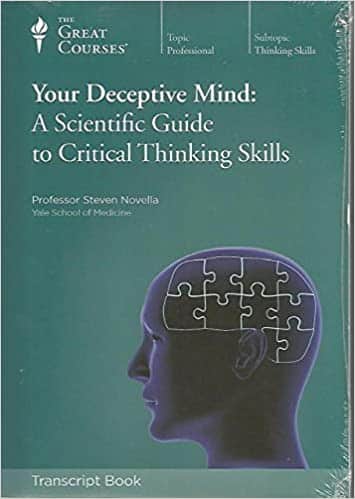
Our minds can often deceive us to think differently, while the truth is looking right in your eyes. Being said that, human judgment and decision making can often be clouded by certain feelings that are attached to it. There is no denial to it that sometimes we are unable to look at the reality because of our emotions and feelings.
This book is the right guide for all those who think that they are lacking in any field of life due to their emotions and being unable to think critically on the subject. The book presents you with a blunt and harsh narrative to stop relying on emotions and scientifically understand the factors that are stopping you from thinking critically and efficiently. It is written by Steven Novella and published by The Great Courses. The book also includes a critical toolbox that you can use to access the quality of information and skillset required to think critically.
- Authors : Professor Steven Novella (Author), Yale School of Medicine (Foreword)
- Publisher : The Great Courses (January 1, 2012)
17. Master Critical Thinking: Think Intelligently, Improve Problem-Solving Skills, make better Decisions, and Upgrade your life.
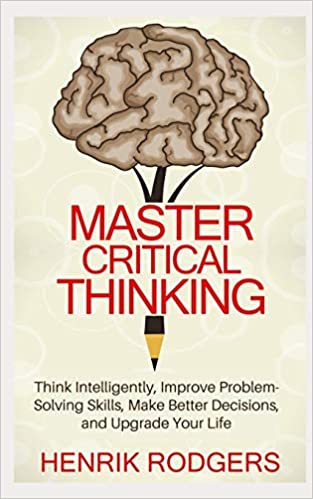
To master critical thinking, one must have several goals. The goals can be thinking intelligently and enable enhanced thinking, improving your problem-solving skills or simply making better decisions in everyday life.
Whatever your goals may be, critical thinking is the right approach towards upgrading your life with the help of improving each decision and backing it based on solid arguments instead of vague assumptions and emotions attached to it that can be deceiving at times. If you often struggle with the urge to make the right decision and want to get over with the gut feelings you have. This book will guide you to start thinking critically instead of simply relying on emotions and assumptions.
- Authors : Henrik Rodgers (Author)
- Publisher : Independently published (July 9, 2019)
- Pages : 116 pages
18. Critical Thinking: The Beginners User manual to Improve your communication and self-confidence skills Every day. The Tools and the concepts for problem-solving and decision making.
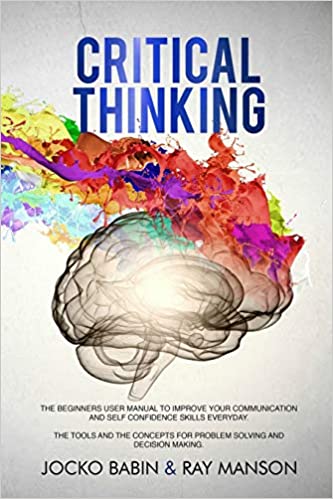
To learn from your own failures is the right way to understand and not make those mistakes again. It is the best practice to improve your own-self. However, to improve and to correct your own mistakes, the right approach is to realise them. While there are people, who can turn a blind eye towards their own mistakes. This book is the right guide that teaches you how not to. The book contains great insight into self-realization and how you can use it to improve your own thinking skills.
The book is written by Jacko Babin and Ray Manson. It contains elaborative insight on how you can effectively stop second-guessing yourself and have a confident approach towards improving the mistakes. Once you have realized your own mistakes, the rest of the journey becomes easier for you. The book also contains numerous real-life examples that will help you understand these concepts in a much better way.
- Authors : Jocko Babin (Author), Ray Manson (Author)
- Publisher : Independently published (March 9, 2019)
- Pages : 147 pages
19. A concise guide to critical thinking (1st Edition)
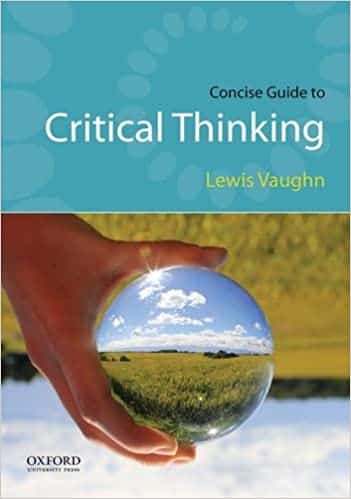
Lewis Vaughn is considered an expert on the subject of critical thinking. He has written several books covering the topic. His books contain an in-depth analysis of how you can enable critical thinking in your daily routine and what might be stopping you from doing so.
This book, however, can be deemed as a complete summary of concepts being advocated by him. Along with the guidance on covering the obstacles that are stopping you and enabling your mind to think critically. This book contains a highly understandable and easy to follow the narrative that will be great for all the beginners to understand and imply critical thinking from scratch to master level.
- Publisher : Oxford University Press; Annotated – Illustrated Edition (October 1, 2017)
- Pages : 352 pages
20. The miniature guide to critical thinking concepts and tools (Thinker’s guide library)
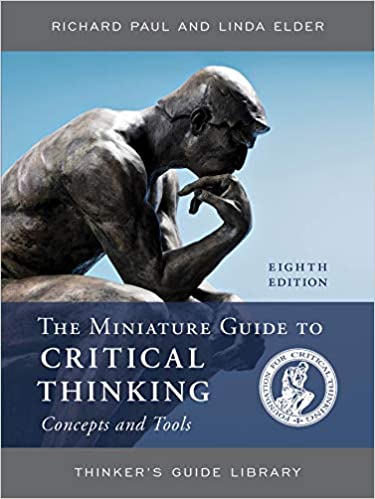
If you are looking to master critical thinking and do not have time to read extensive concepts and get yourself indulged with the psychic or scientific approach. This is the book for you. This book presents a concise and to-the-point approach to critical thinking concepts and tools.
Written by Richard Paul and Linda Elder, the book does not only contain all the information required to understand the concepts on critical thinking but also how you can imply those in your daily life to enhance your decision making and critical thinking skills effectively. The book presents a short and easy to follow approach towards the subject.
- Publisher : The Foundation for Critical Thinking; Eighth Edition (September 20, 2019)
- Pages : 48 pages
Choosing the Best Critical Thinking Books
Critical thinking is not just a skill-set. It is a way of life that enables you to make the right decisions in every part of life. It also enables you to understand the things, events and the factors involved behind them efficiently. With the help of critical thinking, you can analyse the events and decisions unbiased by any sort of feelings or attachments.
We have gone through these books and compiled a list of critical reviews on these books. If you are looking to start thinking critically and are unsure of where to start. This guide will definitely help you to choose the right book to aid your learning journey.
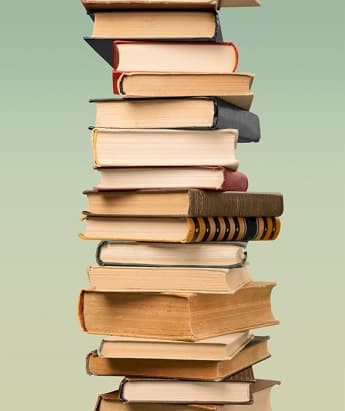
Subscribe To Email List
FREE Great Book Recommendations
Don't Miss Out On Books You Must Read
We won't send you spam. Unsubscribe at any time
Frank Heijdenrijk ♛
15 Books About Critical Thinking That Will Ignite Your Analytical Prowess
What truly cultivates critical thinking in individuals?
Picture a scenario: you are sitting in an open space, surrounded by curious minds just like you. The air is buzzing with energy, and a lively debate is in progress. As you listen to different opinions and arguments, you can’t help but notice the spark in everyone’s eyes and the excitement in their expressions.
With each turn, a speaker presents their views and supports their ideas with facts, reasoning, and examples. As the discussion goes on, you find yourself marveling at the way these critical thinkers articulate their thoughts and engage others.
Critical thinking has been the primary weapon humans use to make sense of the world and solve complex problems. Developing such a skill allows us to evaluate situations better, assess evidence, and arrive at meaningful conclusions.
Moreover, critical thinking can elevate your presence on the web and in everyday life. It has the potential to help you gain recognition across platforms such as blogs, social media, and community forums, reaching millions of users worldwide.
Honing your critical thinking skills will also enable you to:
- become a respected thought leader (both offline and online)
- grasp the attention of people around you
- communicate your ideas effectively and logically
- become an influential writer, podcaster, or speaker
- (outshine others in discussions and debates, whether at social gatherings or work events)
And to enhance your critical thinking, you need to explore great books. Over the years, I’ve delved into hundreds of books, with several of them focusing on critical thinking.
Below, you’ll find a curated list of 15 exceptional books that you shouldn’t miss if you wish to sharpen your critical thinking abilities.
1. Critical Thinking & Problem Solving: [5 in 1] The Definitive Guide to Decision-Making Secrets, Logic, Systematic Problem-Solving and Better Thinking with Insider Techniques to Spot Logical Failures
I recommend this book because it is a comprehensive and practical guide on how to make effective decisions with confidence. Problem-solving, critical thinking, and decision-making skills are crucial for success in any field, and this book explains these concepts in detail with real-world examples. You’ll learn how to identify and analyze problems, generate and evaluate options, and make effective decisions in different situations. Additionally, this book will teach you how to manage emotions and stress when making decisions under pressure. If you’re ready to take your problem-solving, critical thinking, and decision-making skills to the next level, this book is the perfect way to start.
Check out Critical Thinking & Problem Solving: [5 in 1] The Definitive Guide to Decision-Making Secrets, Logic, Systematic Problem-Solving and Better Thinking with Insider Techniques to Spot Logical Failures
2. Critical Thinking & Logic Mastery — 3 Books In 1: How To Make Smarter Decisions, Conquer Logical Fallacies And Sharpen Your Thinking
I like this book because it teaches you a life skill that is often overlooked in our education system, critical thinking. The book reveals that critical thinking is a vital skill that 93% of CEOs believe is more important than a college degree. It shows how poor decision-making and flawed reasoning can cause biases that hold you back from achieving your potential. This bundle includes three books that are easy to read and use to help you build stronger arguments, make better decisions, and spot logical fallacies.
The first book outlines a critical thinking framework that is practical and easy to implement. It helps you to become an independent thinker and make intelligent decisions by unlocking the power of the eight critical thinking characteristics you already possess. The second book reveals 28 common logical fallacies and how to conquer them, helping you to separate truth from fiction. The third book lays out powerful routines to help you change your mind and sharpen your thinking through actionable exercises.
This isn’t a theoretical, dry textbook. Instead, it’s a practical guide to enhancing your personal and professional life. You’ll learn how to identify fake news and misinformation, adopt a more nuanced approach, and think like a scientist. The book includes exercises that help you drill each point home, ensuring that you won’t “read and forget” what you’ve learned.
Using this book bundle, critical thinking will become second nature to you, allowing you to make more confident decisions, notice trends, and decide on a plan of action. I recommend this book because it’s a valuable investment in yourself and your future. With the skills you’ll learn, you’ll be able to succeed in areas where you previously struggled, take on new challenges, and become the person you want to be. So why wait? Take the first step towards unlocking your full potential and click “Add to Cart” now!
Check out Critical Thinking & Logic Mastery — 3 Books In 1: How To Make Smarter Decisions, Conquer Logical Fallacies And Sharpen Your Thinking
3. The Miniature Guide to Critical Thinking Concepts and Tools (Thinker’s Guide Library)
I highly recommend this book because it empowers people to think critically about every aspect of their lives. “The Miniature Guide to Critical Thinking Concepts and Tools” is an essential resource for every profession and course of study. Richard Paul and Linda Elder’s groundbreaking work is distilled into this powerful guide, which teaches readers how to deconstruct their thinking and assess its quality. By identifying and avoiding egocentric and sociocentric thought patterns, readers can avoid close-mindedness, arrogance, and other negative traits. The eighth edition of this guide provides an even more detailed foundation in critical thinking, with practical applications for teaching and learning at all levels. This book has sold over half a million copies worldwide and is widely used in educational and professional settings. It’s a must-read for anyone who wants to improve their critical thinking skills and contribute to fair-minded critical societies.
Check out The Miniature Guide to Critical Thinking Concepts and Tools (Thinker’s Guide Library)
4. Master Critical Thinking for Teens: The Complete Guide to Improving Decision-Making Skills, Mastering Problem Solving, and Conquering Logical Fallacies
I recommend this guide because it equips teenagers with the necessary tools to become critical thinkers. As the importance of critical thinking cannot be overstated, this guide is essential for anyone who wants to make sure they can navigate the world of information accurately and efficiently. What I particularly like about this guide is that it breaks down complex theories and ideas into easily digestible concepts. The real-life examples and step-by-step strategies make it simple for teenagers to apply critical thinking to their everyday lives. The guide covers everything from identifying assumptions and biases to evaluating arguments and recognizing logical fallacies. It is also highly beneficial for teenagers who want to become better speakers and debaters. The authors of the guide, who are renowned youth psychology experts, apply the lens of critical thinking upon the teenage Gen Z experience in the Age of Information. The guide outlines cognitive biases, logical fallacies, information analysis strategies, debate and argument strategies, and media and advertisement analysis strategies. So, if you’re looking to improve your decision-making skills, master problem solving, and conquer logical fallacies, this guide is a must-read.
Check out Master Critical Thinking for Teens: The Complete Guide to Improving Decision-Making Skills, Mastering Problem Solving, and Conquering Logical Fallacies
5. Critical Thinking Skills For Dummies
I recommend this book because it is a comprehensive guide to mastering critical thinking skills. Critical Thinking Skills For Dummies is an excellent resource for those who struggle with complex ideas. It explains how to construct a compelling argument and communicate your ideas clearly. The book encourages you to develop your reflective thinking skills by providing you with helpful tools and strategies, including concept mapping and brainstorming.
What sets this book apart is its hands-on, lively, and fun exercises that you can put to work today. The author helps you evaluate evidence, interpret texts effectively, and read between the lines. Not to mention, you’ll learn when not to apply logic too rigidly! The book offers plain-English instruction on how to identify other people’s assumptions, methodology, and conclusions.
Critical Thinking Skills for Dummies is an ideal choice if you’re a student looking to improve your grades or a professional who wants to sharpen their analytical skills. It is also perfect if you’re undertaking reviews or planning research projects and need guidance. The book is accessible and engaging, making it easy to understand complex concepts. I highly recommend it to anyone looking to turbocharge their reasoning skills and become a better critical thinker.
Check out Critical Thinking Skills For Dummies
6. Critical Thinking (The MIT Press Essential Knowledge series)
I recommend this book because it offers a comprehensive guide to the importance, history, and practice of critical thinking. In today’s world, where it’s becoming increasingly difficult to differentiate facts from fiction, developing critical thinking skills is crucial. The author, Jonathan Haber, takes readers back to the origins of critical thinking in philosophy, psychology, and science. He breaks down the various components that make up critical thinking, including structured thinking, language skills, background knowledge, information literacy, intellectual humility, empathy, and open-mindedness.
One of the major takeaways from this book is that not enough people are practicing critical thinking, which can lead to false conclusions and poor decision-making. However, the author offers hope by demonstrating that critical thinking can be taught, evaluated, and improved. As such, this book is a must-read for teachers, students, and anyone looking to hone their critical thinking skills. I like this book because it provides actionable advice for educational leaders and policy-makers on how to make critical thinking a priority in education. Overall, the reason I recommend this book is that it provides an insightful, well-researched, and accessible guide to the importance of critical thinking in the 21st century.
Check out Critical Thinking (The MIT Press Essential Knowledge series)
7. Critical Thinking Beginner’s Guide: Learn How Reasoning by Logic Improves Effective Problem Solving. The Tools to Think Smarter, Level up Intuition to Reach Your Potential and Grow Your Mindfulness
I recommend this book because it provides practical exercises and tools to help you improve your critical thinking skills. It teaches you how to evaluate your weaknesses and strengths in thinking, get the most out of your time, and make better choices using both logic and creativity. With 40 powerful strategies and 12 effective recommendations, you’ll learn how to identify other people’s arguments and critically deal with fake news. Whether you’re making personal or professional decisions, this book will guide you through a sequence of steps that will lead you from problem understanding to implementing the best solution possible. So if you want to take control over your future and become a critical thinker, I highly recommend you give this book a read.
Check out Critical Thinking Beginner’s Guide: Learn How Reasoning by Logic Improves Effective Problem Solving. The Tools to Think Smarter, Level up Intuition to Reach Your Potential and Grow Your Mindfulness
8. Critical Thinkers: Methods for Clear Thinking and Analysis in Everyday Situations from the Greatest Thinkers in History (The critical thinker)
I recommend this book because Critical Thinkers gives you access to the intellect of some of the world’s most renowned critical thinkers like John Stuart Mill and Descartes, among others. The book emphasizes the importance of logical thinking and the essentials of critical thinking in day to day life situations. It teaches you how to think slowly and deliberately before making any major decision. The book also encourages you to question opinions and facts and to gather information before jumping to conclusions. What’s more, Critical Thinkers offers methods and principles for logical and analytical thinking in a variety of situations, making it applicable not just to career opportunities but also to personal life and friendships. I highly recommend this helpful book to readers of all ages who want to improve their critical thinking skills and enhance their communication, reasoning, and logic.
Check out Critical Thinkers: Methods for Clear Thinking and Analysis in Everyday Situations from the Greatest Thinkers in History (The critical thinker)
9. A Workbook for Arguments: A Complete Course in Critical Thinking
I recommend this textbook because it has a wide range of homework exercises adapted from real-life arguments. It provides practical advice to help students succeed when applying rules, along with further practice suggestions to improve their critical thinking skills. It also has a detailed guide on in-class activities and take-home assignments designed to engage and develop students’ critical thinking skills. Moreover, it includes an appendix on mapping arguments that introduces students to this significant skill and has model responses to odd-numbered exercises, including commentaries on the strengths and weaknesses of selected model responses.
This third edition of Workbook has the entire text of the recent fifth edition of the Rulebook, supplemented with further explanations and exercises. The updated and improved homework exercises ensure that the examples continue to resonate with today’s students. Additionally, it has a new chapter on engaging constructively in public debates, including five new sets of exercises that train students to engage respectfully and constructively on controversial topics, making this book particularly important in our current hyper-partisan age. Furthermore, there are three new critical thinking activities that offer additional opportunities to practice constructive dialogue.
Check out A Workbook for Arguments: A Complete Course in Critical Thinking
10. Critical Thinking
I recommend this because it is an excellent critical thinking book that I absolutely love. Compared to other books on the subject, it stands out with its comprehensive and vital chapters on rhetorical devices, legal, ethical practices, and evaluating source credibility. In today’s world, where information overload is prevalent, possessing these skills is crucial. I believe this book should be your go-to resource if you want to learn critical thinking, whether you’re a student or not. It is my top choice for anyone who wants to develop their critical thinking abilities.
Check out Critical Thinking
11. Critical Thinking: Your Guide to Effective Argument, Successful Analysis and Independent Study
I recommend this book because it provides a personal toolkit for demystifying critical thinking. It teaches you a set of techniques that will help you sharpen your ability to think critically by developing and honing your skills. You’ll be able to build a solid argument, evaluate evidence and identify errors, understand and account for biased or flawed thinking, become a savvy user of technology, sift through the deluge of digital information, and develop confident critical writing. The book is designed to work with a power pack of digital resources and exercises, giving you practical and effective tools to think and write critically in an information-saturated age. The second edition has improved accessibility, with a new and improved layout to enhance the eBook experience, and updated language, examples, and further reading recommendations throughout. Whether you’re starting your first degree or arriving as an international or mature student, this book equips you with the skills, insights, and confidence to achieve success.
Check out Critical Thinking: Your Guide to Effective Argument, Successful Analysis and Independent Study
12. Critical Thinking: The Basics
I recommend this book because it provides an excellent introduction to the world of critical thinking, drawing on philosophy, communication, and psychology. The author makes the content highly accessible and engaging, making it easy for readers to understand the concepts involved. The book emphasizes the relevance of critical thinking in both academic and real-world contexts, showing the knowledge, methods, and skills needed to avoid making poor judgments, evaluate arguments, and engage constructively in dialogues.
The book covers various topics such as the relationship between critical thinking, emotions, and the psychology of persuasion, character dispositions like open-mindedness, courage, and self-knowledge, argument identification and reconstruction, and fallacies and argument evaluation. In its second edition, the book has been revised and updated throughout, including an additional chapter on the relationship between critical thinking and emotions. The author also included new sections discussing modern concepts like the ‘experiential mind’ and ‘need for cognitive closure,’ with contemporary examples drawn from issues such as conspiracy theories, the pandemic, and the misuses of social media.
Furthermore, the book includes updated and expanded discussion questions, exercises, and suggestions for further reading. It’s an essential read for novice students and any individual seeking to improve their thinking skills and decision-making abilities.
Check out Critical Thinking: The Basics
13. The Basics of Critical Thinking Workbook — Lessons and Activities (Grades 4–9)
I recommend this book because it teaches the most important critical thinking concepts that every student should know in an engaging and colorful way. Unlike other workbooks, this book defines and teaches critical thinking in a way that students can easily grasp, using simple explanations, diagrams, and fun activities to aid learning. Apart from serving as a comprehensive course in critical thinking, the book’s activities can also complement lessons in all subjects. While this book teaches common argument forms, its main focus is on identifying and evaluating evidence — the basis of critical thinking. By completing this book, students will possess a fundamental set of critical thinking skills that they can rely on for the rest of their lives.
Check out The Basics of Critical Thinking Workbook — Lessons and Activities (Grades 4–9)
14. Thinking Like a Lawyer
I recommend this book because it introduces a highly useful framework for bridging the critical thinking gap among students. Thinking Like a Lawyer is a practical guide that empowers teachers with the right knowledge and tools to teach critical thinking skills to all students, regardless of their potential. This book also teaches students the habits, skills, and mindsets that lawyers use when tackling problems in the 21st century. Through the author’s unique experience as a teacher-turned-attorney-turned-education innovator, Colin Seale offers various instructional strategies and examples that can be used in all grade levels and subjects. The book’s individual chapters address issues like underachievement, evidence-based reasoning, equitable education, and leveraging families to close the critical thinking gap. This book is definitely a great resource for anyone who wants to compete in a rapidly changing global marketplace.
Check out Thinking Like a Lawyer
15. Critical Thinking Activities for Kids: Fun and Challenging Games to Boost Brain Power
I recommend this because it is an excellent tool for fostering critical thinking in children within the age range of 6 to 9. It is essential to instill a lifelong love for thinking outside the box, and this book does just that with its amusing activities. From using deduction to deciphering everyone’s favorite amusement park ride to solving math problems with balls instead of numbers, these puzzles are bound to exercise your child’s brain. The book includes a variety of activities, such as matching puzzles, logic grids, fill-in-the-blanks, word scrambles, and more, keeping them engaged while improving their abilities. With clear instructions and gradually increasing difficulty, children can complete each challenge without succumbing to frustration. The activities use real-world examples such as going to the zoo or attending a party, making it relatable and easy for children to grasp. Help your child improve their thinking and problem-solving skills with this fantastic book.
Check out Critical Thinking Activities for Kids: Fun and Challenging Games to Boost Brain Power
16. The Critical Thinking Toolkit
I recommend this book because The Critical Thinking Toolkit is an excellent guide to have in your arsenal. The book provides readers with the essential knowledge and methods for clear, analytical, logical thinking and critique that can be applied to a range of scholarly contexts and everyday situations. One of the many benefits of this book is that it takes an expansive approach to critical thinking by exploring concepts from other disciplines, such as philosophy, psychology, sociology, and political science. The book uses concise and easily digestible entries that make it accessible to readers. Additionally, it offers exercises and real-life examples at the end of each chapter to help readers apply new critical thinking and reasoning skills. This book is ideal for anyone looking for a sophisticated yet accessible introduction to critical thinking, from beginning to advanced students and general readers alike.
Check out The Critical Thinking Toolkit
17. Critical Thinking for Strategic Intelligence
I recommend this book because it is an essential tool for individuals looking to develop core critical thinking skills and analytic techniques. The updated version of Critical Thinking for Strategic Intelligence, written by Katherine Hibbs Pherson and Randolph H. Pherson, is an easy-to-use handbook that is essential for anyone looking to conduct research, generate hypotheses, evaluate sources of information, draft papers, and ultimately present analysis. The authors have framed this indispensable text around 20 key questions that all analysts must ask themselves. These questions cover crucial aspects like how to begin, where to find the necessary information, what arguments to make, and how to convey the message effectively.
The Third Edition of this book includes suggested best practices for dealing with digital disinformation, politicization, and AI. The experience and knowledge of the authors go a long way in introducing these essential skills to an individual. In particular, the book should be an excellent resource for anyone who is part of the intelligence community. I like this book because it draws upon years of teaching and analytic experience of the authors, making it a must-read for anyone interested in enhancing their critical thinking skills and analytic techniques.
Check out Critical Thinking for Strategic Intelligence

Written by Frank Heijdenrijk ♛
Sometimes I believe I have amazing things to write about. Most of the times I am absolutely wrong.
Text to speech
10 Best Books on Critical Thinking & Analytical Skills
In today’s world, where information is abundant and often conflicting, it’s essential to possess strong critical thinking and analytical skills. Critical thinking helps us make informed decisions, evaluate arguments and claims, and solve problems. Analytical skills, on the other hand, allow us to break down complex issues and data into more manageable parts, making it easier to understand and act upon them.
Why Critical Thinking and Analytical Skills are Essential
Critical thinking and analytical skills are essential because they enable us to navigate the ever-changing landscape of information, knowledge, and ideas. In a world where we are bombarded with information from multiple sources, these skills help us assess the reliability and validity of that information and make informed decisions.
Moreover, critical thinking and analytical skills are crucial for academic success. Students who develop these skills can analyze and evaluate complex texts, arguments, and ideas, and formulate their own opinions based on evidence. These skills also help students in their research projects, enabling them to differentiate between credible and unreliable sources, and critically evaluate the evidence presented in those sources.
The Importance of Critical Thinking in Daily Life
Every aspect of our life requires critical thinking, be it personal relationships, buying a product online, or evaluating political campaigns. Critical thinking helps us identify and evaluate assumptions, biases, and arguments and make decisions based on evidence.
For instance, critical thinking can help us evaluate the claims made in advertisements and make informed decisions about the products we buy. It can also help us identify and challenge stereotypes and biases in our personal relationships, leading to more respectful and inclusive interactions.
How Analytical Skills Enhance Problem-Solving Abilities
Problem-solving is an essential skill in the workplace and personal life. Analytical skills help us break down complex problems into smaller parts, identify the root causes, and develop effective solutions. Analytical thinkers can predict possible outcomes and assess the risks involved in decision-making.
Furthermore, analytical skills can help us in our everyday life. For example, when faced with a household problem such as a leaky faucet, analytical skills can help us diagnose the problem, identify the necessary tools and materials, and develop a plan to fix the issue.
In conclusion, critical thinking and analytical skills are essential for success in both personal and professional life. These skills enable us to make informed decisions, evaluate information, and solve complex problems. Therefore, it is important to cultivate these skills through education and practice.
The Top 10 Books on Critical Thinking
Critical thinking is an essential skill that helps us navigate the complexities of the world around us. It enables us to analyze information, evaluate arguments, and make informed decisions. If you’re looking to improve your critical thinking skills, here are ten books that can help you on your journey.
“Thinking, Fast and Slow” by Daniel Kahneman
This book is a fascinating exploration of how our brain processes information and makes decisions. Drawing on insights from neuroscience, psychology, and economics, Kahneman shows how we can overcome cognitive biases and think more critically. He also offers practical tips for improving our decision-making skills.
You can find this book here .
“The Art of Thinking Clearly” by Rolf Dobelli
In this book, Dobelli provides readers with 99 clear-thinking errors, biases, and fallacies that they should avoid. He uses real-life examples to make his points more relatable and offers practical advice for improving our critical thinking skills.
“The 5 Elements of Effective Thinking” by Edward B. Burger and Michael Starbird
This book draws on insights from neuroscience, education, and psychology to reveal the five essential elements of critical thinking. Burger and Starbird provide a framework for thinking about challenging problems and coming up with innovative solutions. They also offer practical tips for improving our problem-solving skills.
“Critical Thinking: A Concise Guide” by Tracy Bowell and Gary Kemp
If you’re new to critical thinking, this book is an excellent place to start. Bowell and Kemp provide readers with an introduction to critical thinking, including a breakdown of the key concepts, tools, and techniques. They also cover ethics, reasoning, and argument evaluation.

“The Power of Critical Thinking” by Lewis Vaughn
In this book, Vaughn explores how critical thinking can improve our daily lives. He provides tips and tools for analyzing and evaluating arguments, and includes real-life examples and exercises to help readers develop their critical thinking skills.
“Think Smarter: Critical Thinking to Improve Problem-Solving and Decision-Making Skills” by Michael Kallet
Kallet offers readers a step-by-step approach to critical thinking, including how to identify biases, assumptions, and problems. He also provides tools and techniques that can help in making better decisions. This book is a must-read for anyone looking to improve their problem-solving skills.
“The Demon-Haunted World: Science as a Candle in the Dark” by Carl Sagan
Sagan’s book is a powerful exploration of the importance of scientific thinking and skepticism in a world where misinformation and superstition often dominate. He provides readers with a foundation in scientific thinking that can help them evaluate claims and evidence more effectively.
“Nonsense: The Power of Not Knowing” by Jamie Holmes
In this book, Holmes explores how embracing uncertainty and ambiguity can improve critical thinking skills. He includes real-life examples and explores how different approaches to problem-solving can lead to better outcomes. This book is a great read for anyone looking to expand their thinking beyond the confines of certainty.
“The Logic of Scientific Discovery” by Karl Popper
This book is a classic in the philosophy of science and explores how scientific theories are developed and tested. Popper provides readers with a framework for evaluating claims and evidence and can help them understand the scientific process more fully. This book is a must-read for anyone interested in the scientific method.
“The Structure of Scientific Revolutions” by Thomas S. Kuhn
Kuhn’s book explores how scientific paradigms shift over time and how new ideas and technologies can challenge and replace old ones. He provides readers with a deeper understanding of how scientific ideas are developed and can help them evaluate the validity and reliability of scientific claims and evidence. This book is a fascinating read for anyone interested in the history of science.
Tips for Developing Your Critical Thinking Skills
Developing critical thinking skills is essential for navigating the complexities of modern life with confidence and clarity. In addition to reading books on the subject, there are several ways to develop your critical thinking skills. Here are a few tips:
Practice Active Listening
Active listening is a crucial component of critical thinking. When you’re communicating with others, actively listen to what they’re saying, and ask questions to clarify their points. This will help you understand their perspective and challenge your own assumptions. By doing so, you can broaden your perspective and gain new insights that you may not have considered before.
For example, if you’re having a conversation with someone who has a different political view than you, instead of immediately dismissing their opinion, ask them why they believe what they do. By doing so, you can gain a better understanding of their perspective and challenge your own assumptions.
Ask Thought-Provoking Questions
Asking thought-provoking questions is another way to develop your critical thinking skills. Instead of accepting surface-level explanations, dig deeper by asking questions that challenge assumptions and break down complex problems. Questions like “why?” and “how?” can help you identify underlying issues and gain a deeper understanding of a problem.
For example, if you’re trying to solve a problem at work, instead of accepting the first solution that comes to mind, ask yourself why that solution is the best option. By doing so, you can identify potential flaws in your thinking and develop a more effective solution.
Reflect on Your Own Thinking Process
Self-reflection is a critical component of developing your critical thinking skills. Take time to reflect on your own thinking process and identify any biases or assumptions that may be influencing your decisions. By doing so, you can become more aware of your own thought patterns and develop more effective strategies for critical thinking.
For example, if you’re trying to make a decision about a job offer, take time to reflect on your own biases and assumptions about the job, the company, and the industry. By doing so, you can make a more informed decision that is based on facts rather than assumptions.
Reading books on critical thinking and analytical skills can also help us develop a more effective approach to problem-solving and decision-making. By honing these skills, we can navigate the complexities of modern life with confidence and clarity.
- Recent Posts
- The 11 Best Books About Cats You Should Read - January 16, 2024
- The 9 Best Books on Building Confidence - January 16, 2024
- Discover the 10 Best Books on the Brain - January 16, 2024
Related Posts:
- Professional & Technical
- Business Management

- Amazon international products are subject to separate terms and conditions and are sold from abroad by foreign sellers. Amazon’s products may differ from versions available in Canada, including configuration, age rating, product language, labelling and instructions.
- The manufacturer’s warranty may not be valid in Canada.
Sorry, there was a problem.

Download the free Kindle app and start reading Kindle books instantly on your smartphone, tablet or computer – no Kindle device required .
Read instantly on your browser with Kindle for Web.
Using your mobile phone camera, scan the code below and download the Kindle app.

Image Unavailable

- To view this video, download Flash Player
Follow the author

Think Smarter: Critical Thinking to Improve Problem-Solving and Decision-Making Skills Hardcover – April 7 2014
Purchase options and add-ons.
Think Smarter: Critical Thinking to Improve Problem-Solving and Decision-Making Skills is the comprehensive guide to training your brain to do more for you. Written by a critical thinking trainer and coach, the book presents a pragmatic set of tools to apply critical thinking techniques to everyday business issues. Think Smarter is filled with real world examples that demonstrate how the tools work in action, in addition to dozens of practice exercises applicable across industries and functions, Think Smarter is a versatile resource for individuals, managers, students, and corporate training programs.
Thinking is the foundation of everything you do, but we rely largely on automatic thinking to process information, often resulting in misunderstandings and errors. Shifting over to critical thinking means thinking purposefully using a framework and toolset, enabling thought processes that lead to better decisions, faster problem solving, and creative innovation. Think Smarter provides clear, actionable steps toward improving your critical thinking skills, plus exercises that clarify complex concepts by putting theory into practice. Features include:
- A comprehensive critical thinking framework
- Over twenty-five "tools" to help you think more critically
- Critical thinking implementation for functions and activities
- Examples of the real-world use of each tool
Learn what questions to ask, how to uncover the real problem to solve, and mistakes to avoid. Recognize assumptions your can rely on versus those without merit, and train your brain to tick through your mental toolbox to arrive at more innovative solutions. Critical thinking is the top skill on the wish list in the business world, and sharpening your ability can have profound affects throughout all facets of life. Think Smarter: Critical Thinking to Improve Problem-Solving and Decision-Making Skills provides a roadmap to more effective and productive thought.
- ISBN-10 1118729838
- ISBN-13 978-1118729830
- Edition 1st
- Publisher Wiley
- Publication date April 7 2014
- Language English
- Dimensions 15.24 x 2.54 x 22.86 cm
- Print length 240 pages
- See all details
Frequently bought together

Customers who bought this item also bought

Product description
From the inside flap.
“I don’t have time to think!”. This cliché is at the core of troubled and underperforming workplaces around the globe. In reality, thinking is the most important driver in problem-solving, decision-making, and creativity, and no business can do without it. In daily life and at all levels of an organization, the ability to think critically sets us apart from those who struggle to problem solve. As seasoned critical thinking consultant Michael Kallet explains, solving difficult problems isn’t magic―it’s a skill we can all learn by using the simple techniques in Think Smarter .
For the past decade, Kallet has been training people to think critically. In Think Smarter , he reveals the techniques that lead to higher quality and outside the box results. Contrary to popular belief, critical thinking does not take a lifetime to master. You can quickly learn how to get better results from your thought processes. The problems that really matter are the ones with no obvious solution. To move forward in life and in business, you need to meet these challenges with stronger decisions and more creative solutions. Thanks to the exercises and examples in Think Smarter , this is a goal you can achieve starting today.
No one has time for neuroscience when there are important goals that need to be achieved. The world won’t stop turning while we wade through theory, so innovations and improvements need to happen fast. Think Smarter is not a book of theory. It’s a clear, easy to read set of over 25 concrete tools that you can put to use right away. Solving technical problems, allocating resources, managing teams, working with customers, optimizing risk―critical thinking can revolutionize all of these areas. No matter who you are or what you do, your decisions make a difference. The quality and magnitude of that difference depends on one thing―critical thinking.
Thinking drives absolutely everything we do. It’s the first step toward critical decisions that determine the winners and losers in every industry, and it even influences what we get out of life. In Think Smarter , you’ll learn that if you aren’t thinking critically, you might as well be letting someone else live life for you. The bottom line is, if you want to maximize your chances for success in the areas that matter, and take control of the results, you need to learn to Think Smarter .
From the Back Cover
From the mind behind HeadScratchers, a guide to getting more out of thinking
We often hear about the importance of thinking critically and acting strategically. And yet, there are few resources that provide a business-focused, non-academic, practical approach to doing just that. Thankfully, Mike Kallet has come to our rescue. Mike has a very conversational tone in his writing on this critical subject, thereby making what can potentially be a very dry subject an interesting read. More importantly, the examples of how to use the process of critical thinking and the key “takeaways” help the reader apply the content appropriately. In our business, we rely on rapid and accurate decision making, with little margin for error. The concepts in Think Smarter are easy to implement quickly, realizing great results. ―Jacqui Bellini-Murray, Senior Training Manager at Genentech
Intelligence can be found, knowledge can be acquired, but critical thinking can only be developed. Finally, Mike Kallet delivers a guide for honing this much-needed skill in decision making. Practical and simple, yet profound. Every leader, every decision maker, needs this guide! ―Tess Reynolds, CEO at New Door Ventures
Bringing critical thinking and innovation into a company is a worthy goal, but a very difficult and elusive task. Mike Kallet’s Think Smarter is a stimulating, practical guide that expands the thinking processes to embrace new concepts while keeping a focus on what is success. This is a book developed through years of working with leaders and teams to move them to new levels of problem solving and performance. I have both participated and overseen teams who have been coached by Mike’s critical thinking. The improvements in the subsequent product developments and intra-team dynamics were impressive, breaking historical patterns of thinking processes. The exercises in Think Smarter are especially helpful in bringing clarity to the use of the tools and techniques introduced. Think Smarter is a must read for leaders who are challenged with solving the everyday problems of a business while finding approaches that step up the innovative capabilities of their teams. ―Dan Yost, Managing Partner at Dankat and former EVP at Qwest Communications
About the Author
MICHAEL KALLET founded HeadScratchers in 2004 to train business professionals and leaders in critical thinking, problem solving, decision making, and creativity. Through workshops, webinars, and keynote speeches, he teaches people to apply critical thinking techniques to real world business challenges. Mike has held leadership positions in business environments ranging from ten-person startups to a $500 million public company.
www.headscratchers.com
Product details
- Publisher : Wiley; 1st edition (April 7 2014)
- Language : English
- Hardcover : 240 pages
- ISBN-10 : 1118729838
- ISBN-13 : 978-1118729830
- Item weight : 1.05 kg
- Dimensions : 15.24 x 2.54 x 22.86 cm
- #1,412 in Decision Making in Leadership
- #1,443 in Business Decision-Making & Problem Solving (Books)
- #60,166 in Textbooks
About the author
Michael kallet.
In 2004, Mike Kallet leveraged his 30 year career in problem solving, innovation and leadership and started HeadScratchers (www.headscratchers.com) to train business professionals and leaders in Critical Thinking for Problem Solving, Decision Making and Creativity.
HeadScratchers mission: To help people become better "HeadScratchers". HeadScratchers has created a successful model and conducts workshops for training business professionals and improving their critical thinking, problem solving and decision making abilities.
Mike says his greatest talent is to "get people to think a little differently about a situation or goal". As a result of this, he found that people improved their problem-solving, decision-making and innovation skills.
As a former technology and operations executive, he is experienced in leading the creation and delivery of award winning products and services spanning a variety of computer and communications technologies and markets.
Prior to HeadScratchers, Mike was the Executive Vice President of Operations and Chief Technology Officer at ICG and was responsible for day-to-day operations, the delivery of services, and the development of new products.
Kallet joined ICG in January of 1998 through the Netcom acquisition, one of the largest ISP's at the time. At Netcom, as senior vice president, Kallet was responsible for Network Operations, Marketing and R&D. Under Kallet's leadership, Netcom's NetCompleteTM Product Line (ISP Services) won numerous service awards.
Prior to joining Netcom in 1995, Kallet developed numerous award winning software products. At prior companies, Kallet led development teams that created award winning products that include Harvard Graphics™, Harvard Draw™, and First Graphics™. He also created the award winning products Picture Perfect™ and Diagraph™.
Kallet held positions in systems software groups at IBM in his early career and received a Bachelor of Science degree in Physics from Worcester Polytechnic Institute.
Customer reviews
- Sort reviews by Top reviews Most recent Top reviews
Top reviews from Canada
There was a problem filtering reviews right now. please try again later..
Server Busy
Our servers are getting hit pretty hard right now. To continue shopping, enter the characters as they are shown in the image below.
Type the characters you see in this image:

The Best 21 Books on Strategic Thinking
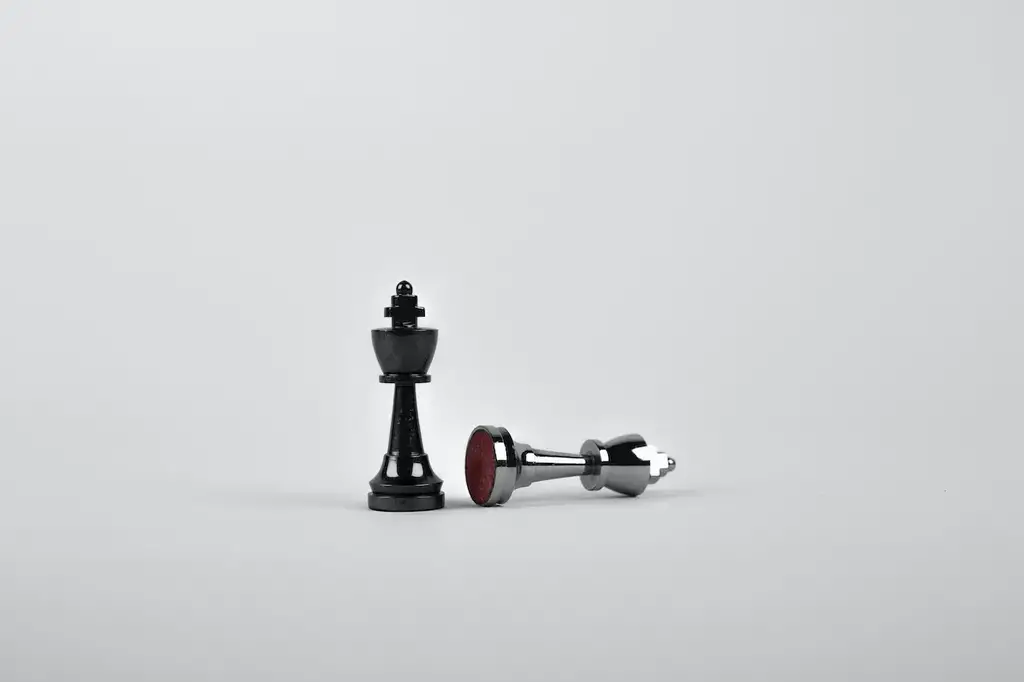
Strategic thinking is a critical skill for leaders and managers in today’s complex and rapidly changing business environment. To develop effective strategies, one needs to have a deep understanding of the organization’s goals, resources, and competitive landscape, as well as the ability to think creatively and adapt to new challenges. Fortunately, there are many books that provide insights into the art and science of strategic thinking. In this article, we have compiled a list of the 21 best books on strategic thinking, based on recommendations from experts in the field and reviews from readers. Whether you are a seasoned executive, an aspiring entrepreneur, or a student of business, these books will provide you with practical tools, inspiring stories, and timeless wisdom to help you develop and implement effective strategies that drive success.
The books on this list provide a wealth of knowledge and insights into the art and science of strategic thinking, from the timeless wisdom of Sun Tzu’s “The Art of War” to the practical tools of Robert S. Kaplan and David P. Norton’s “The Balanced Scorecard.” Whether you are looking to develop a new business model, create a culture of innovation, or lead your organization through a period of change, these books will provide you with the inspiration and guidance you need to succeed. We hope that this list has been helpful in your quest for knowledge and that you will find these books to be valuable resources in your journey towards becoming a strategic thinker and leader.
You may also like
Strategic thinking exercises for teams: enhance collaboration and decision-making, creative vs strategic thinking: unlocking the power of two mindsets, strategic thinking vs systems thinking: understanding the differences and benefits, skills for strategic thinking: enhancing decision-making and planning abilities, download this free ebook.
By continuing to browse the site you are agreeing to our use of cookies and similar tracking technologies described in our privacy policy .
Supporting Educators & Students
Teaching & learning.
As part of its broad-based teaching mission, the AHA develops and shares resources for educators and students. From regional teaching conferences and online programs to pathbreaking research projects, AHA initiatives foster a community grounded in our shared commitment to understanding the past. We support and convene people who share a love of history and historical thinking.
Resources for Educators & Students
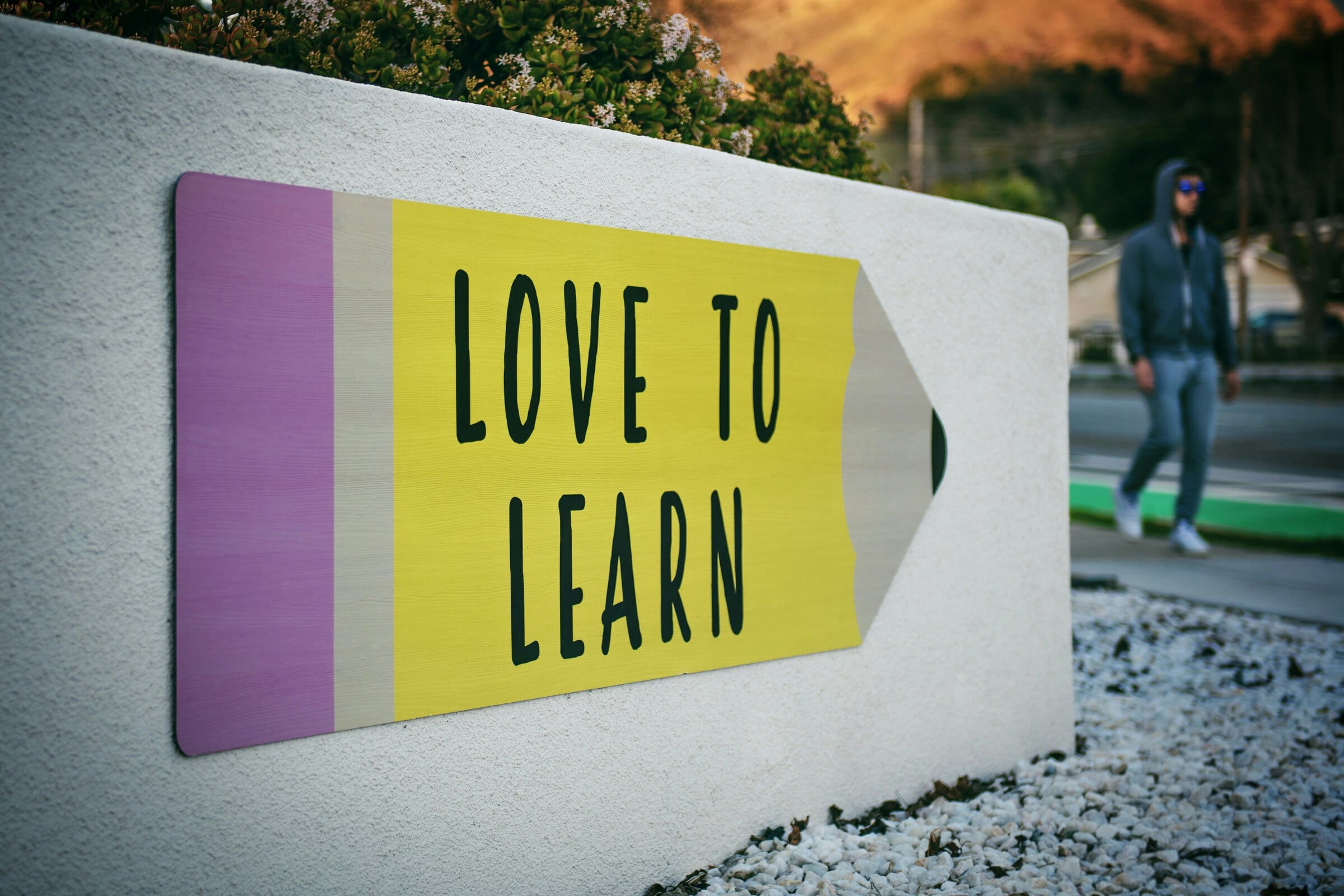
K–12 Education
The AHA strives to ensure that every K–12 student has access to high quality history instruction. We create resources for the classroom, advise on state and federal policy, and advocate for the vital importance of history in public education.
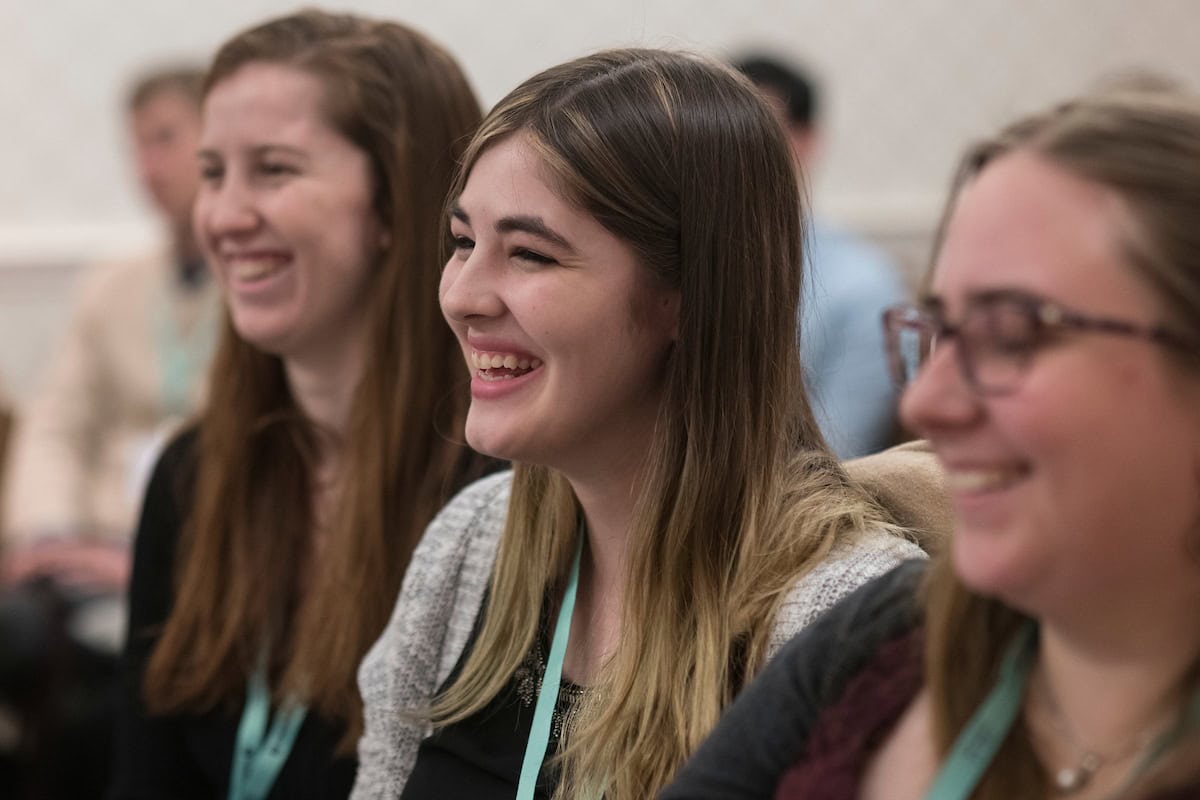
Undergraduate Education
Teaching and learning are at the foundation of the AHA’s mission to promote historical thinking in public life. What do students learn in undergraduate history courses? How and why are history majors so successful in a variety of careers?
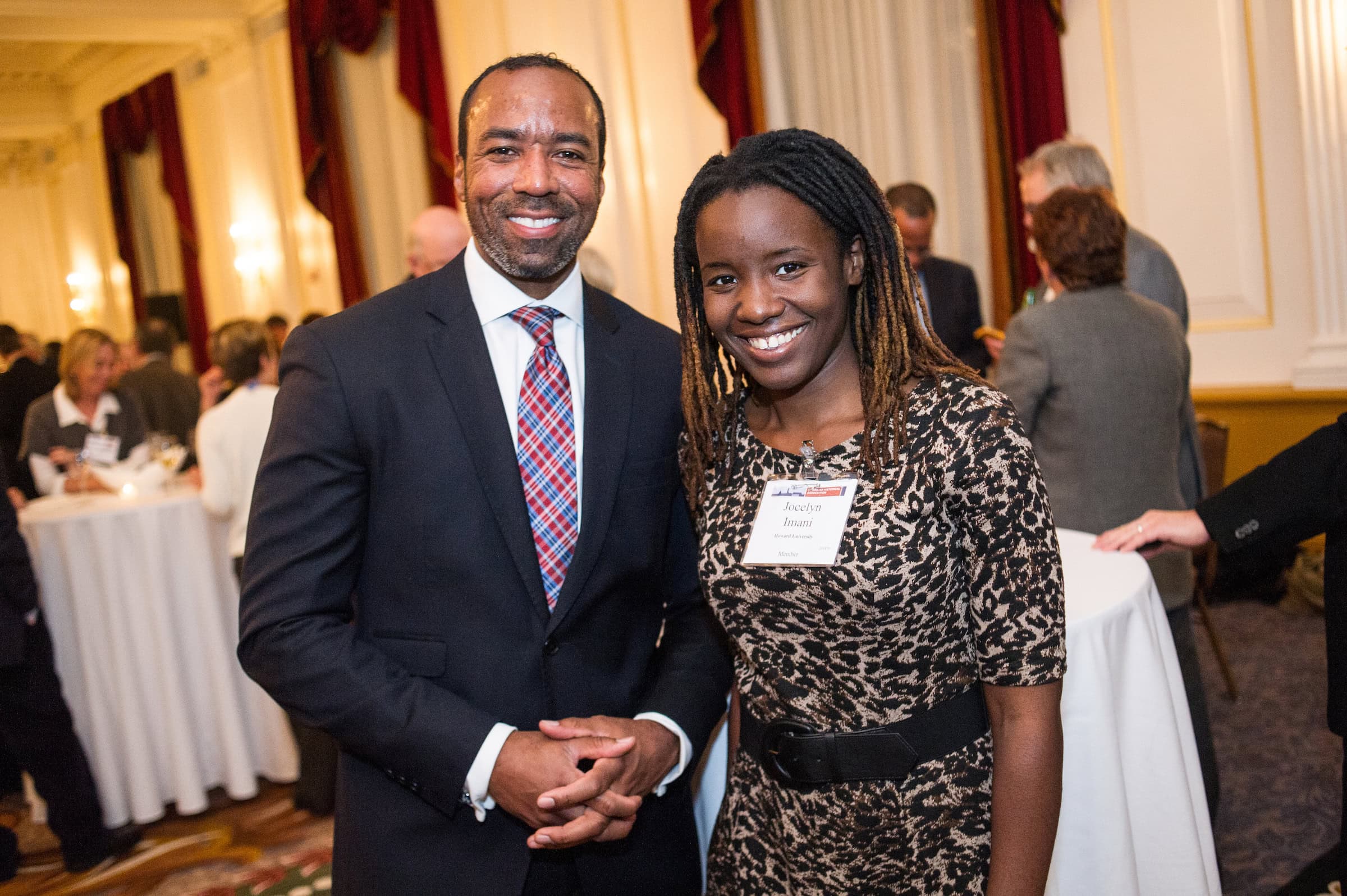
Graduate Education
Many historians will pursue graduate training at some stage in their career. To meet the needs of both students and graduate programs, the AHA creates resources, provides platforms, and convenes conversations about student success from application to completion.
For Academic Departments
History department chairs are on the front lines of the discipline, defending historians’ work and supporting their professional lives at all stages of their academic careers. The AHA strives to strengthen this work and provide resources and opportunities that make chairs’ work easier and valued. The AHA provides resources and hosts a variety of events and opportunities to benefit department chairs and build community, including webinars, sessions at the annual meeting, and an in-person workshop.
Current Events in Historical Context
Essential, carefully researched resources by historians providing context for conversations about current events.
Regional Conferences on Introductory History Courses
What do students learn in introductory history courses? How can historical thinking support student learning and success across the curriculum? Our regional conferences endeavor to strengthen the community of practice focused on introductory history courses, both in secondary and higher education.
Standards & Guidelines

June 10, 2024
Guidelines for Academic Tenure-Track Job Offers in History
June 9, 2024
Statement on Age Discrimination
Aha historical collections.
The AHA has made primary sources available for research purposes, along with AHA archival reports and documents.
Vetted Resources
Vetted Resources compiles in a central location materials and tools that have been professionally vetted by historians, offering instructors access to high-quality materials that meet professional standards
AHA Resource Library
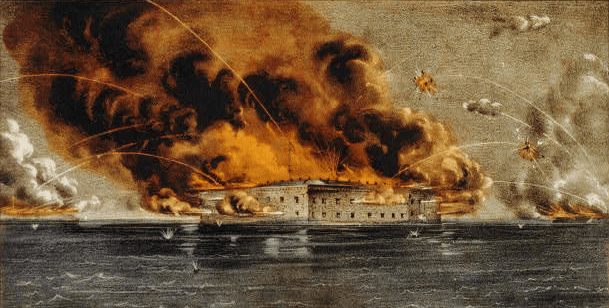
June 20, 2024
16 Months to Sumter: Newspaper Editorials on the Path to Secession

June 16, 2024
The History of Racism and Racist Violence: International Contexts and Comparisons
The history of racism and racist violence: monuments and museums, join the aha.
The AHA brings together historians from all specializations and all work contexts, embracing the breadth and variety of activity in history today.
How IBM helps Wimbledon use generative AI to drive personalised fan engagement
This collaboration with Wimbledon teams extends beyond the fan-facing digital platform, into enterprise-wide transformation.
Authentication vs. authorization: What’s the difference?
6 min read - Authentication verifies a user’s identity, while authorization gives the user the right level of access to system resources.
Applying generative AI to revolutionize telco network operations
5 min read - Learn the many potential applications that operators and suppliers are capitalizing on to enhance network operations for telco.
Re-evaluating data management in the generative AI age
4 min read - A good place to start is refreshing the way organizations govern data, particularly as it pertains to its usage in generative AI solutions.
Top 7 risks to your identity security posture
5 min read - Identity misconfigurations and blind spots stand out as critical concerns that undermine an organization’s identity security posture.
June 27, 2024
IBM announces new AI assistant and feature innovations at Think 2024
June 26, 2024
A major upgrade to Db2® Warehouse on IBM Cloud®
June 25, 2024
Increase efficiency in asset lifecycle management with Maximo Application Suite’s new AI-power...
Achieving operational efficiency through Instana’s Intelligent Remediation
June 24, 2024
Manage the routing of your observability log and event data
Best practices for augmenting human intelligence with AI
2 min read - Enabling participation in the AI-driven economy to be underpinned by fairness, transparency, explainability, robustness and privacy.
Microcontrollers vs. microprocessors: What’s the difference?
6 min read - Microcontroller units (MCUs) and microprocessor units (MPUs) are two kinds of integrated circuits that, while similar in certain ways, are very different in many others.
Mastering budget control in the age of AI: Leveraging on-premises and cloud XaaS for success
2 min read - As organizations harness the power of AI while controlling costs, leveraging anything as a service (XaaS) models emerges as strategic.
Highlights by topic
Use IBM Watsonx’s AI or build your own machine learning models
Automate IT infrastructure management
Cloud-native software to secure resources and simplify compliance
Run code on real quantum systems using a full-stack SDK
Aggregate and analyze large datasets
Store, query and analyze structured data
Manage infrastructure, environments and deployments
Run workloads on hybrid cloud infrastructure
Responsible AI can revolutionize tax agencies to improve citizen services
Generative AI can revolutionize tax administration and drive toward a more personalized and ethical future.
Intesa Sanpaolo and IBM secure digital transactions with fully homomorphic encryption
6 min read - Explore how European bank Intesa Sanpaolo and IBM partnered to deliver secure digital transactions using fully homomorphic encryption.
What is AI risk management?
8 min read - AI risk management is the process of identifying, mitigating and addressing the potential risks associated with AI technologies.
How IBM and AWS are partnering to deliver the promise of responsible AI
4 min read - This partnership between IBM and Amazon SageMaker is poised to play a pivotal role in shaping responsible AI practices across industries
Speed, scale and trustworthy AI on IBM Z with Machine Learning for IBM z/OS v3.2
4 min read - Machine Learning for IBM® z/OS® is an AI platform made for IBM z/OS environments, combining data and transaction gravity with AI infusion.
The recipe for RAG: How cloud services enable generative AI outcomes across industries
4 min read - While the AI is the key component of the RAG framework, other “ingredients” such as PaaS solutions are integral to the mix
Rethink IT spend in the age of generative AI
3 min read - It's critical for organizations to consider frameworks like FinOps and TBM for visibility and accountability of all tech expenditure.
IBM Newsletters

Problem Solving: Best Strategies to Decision Making, Critical Thinking and Positive Thinking
Thomas richards.
66 pages, Kindle Edition
First published March 17, 2015
About the author

Ratings & Reviews
What do you think? Rate this book Write a Review
Friends & Following
Community reviews.

Join the discussion
Can't find what you're looking for.

COMMENTS
The best books on critical thinking: Table of Contents [ show] 1. Critical Thinking: A Beginner's Guide to Critical Thinking, Better Decision Making, and Problem Solving - Jennifer Wilson. $12.38. Buy on Amazon. 03/08/2024 04:56 pm GMT. As the title says, this book introduces you to the art of critical thinking.
Noise by Daniel Kahneman. Being Your Cat by Celia Haddon, Daniel Mills. Bad Science by Ben Goldacre. Dive into the realm of logic and reason with this collection - the most recommended books on critical thinking, curated based on frequent recommendations from leading book blogs and publications.
Learn Critical Thinking techniques for better decisions, problem solving, and innovation Think Smarter: Critical Thinking to Improve Problem-Solving and Decision-Making Skills is the comprehensive guide to training your brain to do more for you. Written by a critical thinking trainer and coach, the book presents a pragmatic framework and set of tools to apply critical thinking techniques to ...
Thinking from A to Z. by Nigel Warburton. Read. 1 Calling Bullshit: The Art of Skepticism in a Data-Driven World by Carl Bergstrom & Jevin West. 2 Thinking, Fast and Slow by Daniel Kahneman. 3 Factfulness: Ten Reasons We're Wrong About The World — And Why Things Are Better Than You Think by Hans Rosling. 4 Black Box Thinking: The Surprising ...
This book is focused more on in-depth analysis and understanding of psychology involved behind decision making and critical thinking approach. Written by David A. Levy, this book presents a highly understandable narrative and approach towards thinking critically and to understand how human psychology works towards it.
(shelved 1 time as critical-thinking-decision-making) avg rating 3.84 — 34,960 ratings — published 2004
Critical Thinking & Problem Solving: [5 in 1] The Definitive Guide to Decision-Making Secrets, Logic, Systematic Problem-Solving and Better Thinking with Insider Techniques to Spot Logical Failures
Books shelved as decision-making-critical-thinking: Asking the Right Questions: A Guide to Critical Thinking by M. Neil Browne, The Fallacy Detective: Th...
A valuable guide on creativity and critical thinking to improve reasoning and decision-making skills Critical thinking skills are essential in virtually any field of study or practice where individuals need to communicate ideas, make decisions, and analyze and solve problems. An Introduction to Critical Thinking and Creativity: Think More, Think Better outlines the necessary tools for readers ...
In an age where rapid decisions can shape destinies, mastering critical thinking is the keystone ofpersonal and professional triumph. As misinformation swirls through the digital ether and datafloods our senses, the ability to think critically—dissecting, analyzing, and making...
Kallet offers readers a step-by-step approach to critical thinking, including how to identify biases, assumptions, and problems. He also provides tools and techniques that can help in making better decisions. This book is a must-read for anyone looking to improve their problem-solving skills. You can find this book here.
Train your brain for better decisions, problem solving, and innovation. Think Smarter: Critical Thinking to Improve Problem-Solving and Decision-Making Skills is the comprehensive guide to training your brain to do more for you. Written by a critical thinking trainer and coach, the book presents a pragmatic set of tools to apply critical thinking techniques to everyday business issues.
This book is a perfect blend of practical guidance, real-world examples, and scientific research on decision making and critical thinking. Phillips's writing style is engaging, and she has a knack for breaking down complex concepts into easy-to-understand language. Throughout the book, she emphasizes the importance of mastering decision-making ...
"Critical Thinking: A Beginner's Guide To Critical Thinking, Better Decision Making and Problem Solving!" is a great introduction to the fundamental principles of critical thinking. It is a book that offers insightful tips, as well as steps that are easy to follow for effective problem solving. Amazingly, the tips provided are not geared towards solving only one type of problem.
Best Books on Thinking and Decision-Making Books that address our thinking process, our biases, faults, and the way we make decisions. flag All Votes Add Books To This List. 1: Thinking, Fast and Slow by. Daniel Kahneman. 4.18 avg rating — 507,538 ratings. score: 299, and 3 people voted ...
"Critical Thinking: A Beginner's Guide To Critical Thinking, Better Decision Making and Problem Solving!" is a great introduction to the fundamental principles of critical thinking. It is a book that offers insightful tips, as well as steps that are easy to follow for effective problem solving.
1 Top Picks for Decision-Making Books. 1.1 Decide Smarter. 1.2 The Best Yes Guide. 1.3 Making the Best of a Bad Decision. 1.4 The Decision Book. 1.5 The Art of Decision Making. 2 Buying Guide. 2.1 Assessing Content Quality. 2.2 Presentation and Accessibility.
Informed Decision-Making: Master robust methods to assess situations and make well-informed decisions consistently. ... This comprehensive book dives into critical thinking, logic, and problem-solving skills, promising to empower readers to make informed decisions and tackle challenges creatively. It offers a systematic approach, covering the ...
"Critical thinking logic & problem solving 4-in-1" by Bigrocks Thinking is a comprehensive guide to developing critical thinking skills and problem-solving abilities. The book is divided into four sections, each covering a different aspect of critical thinking, including logical reasoning, problem-solving techniques, decision making, and ...
The textbook identifies arguments for embracing critical thinking skills and presents a structured method to help ensure the development of stronger critical thinking skills in business decision-making practices. The textbook further provides examples to help students apply the processes they are learning to emerging business issues.
The Top 20 Best Books on Strategic Thinking. Watch on. " Good Strategy Bad Strategy: The Difference and Why It Matters" by Richard Rumelt - This book explains the difference between good and bad strategies and provides insights into how to develop effective strategies. "The Art of War" by Sun Tzu - This ancient Chinese text provides ...
We support and convene people who share a love of history and historical thinking. View Resource Library. Home. Teaching & Learning. Resources for Educators & Students. K-12 Education. The AHA strives to ensure that every K-12 student has access to high quality history instruction. We create resources for the classroom, advise on state and ...
1 offer from $20.47. #35. Critical Thinking, Logic & Problem Solving: The Complete Guide to Superior Thinking, Systematic Problem Solving, Making Outstanding Decisions, and Uncover Logical Fallacies Like a Pro. Neuronswaves. 280. Paperback. 6 offers from $27.26. #36. Critical Thinking, Logic & Problem Solving: The Complete Guide to Superior ...
Lucky for you, critical thinking can be learned! This book will teach you how to overcome cognitive biases and fallacies in your thinking so that you can think more clearly in your everyday life. Inside, you'll find five chapters packed with interesting information on how to develop effective decision-making and problem-solving skills.
5 min read - Identity misconfigurations and blind spots stand out as critical concerns that undermine an organization's identity security posture. More articles Announcements June 27, 2024 . IBM announces new AI assistant and feature innovations at Think 2024 ... (MES) software is a critical decision for any manufacturing organization.
Within this book's pages you'll find the answers to these questions and more. Just some of the topics and questions covered include.Problem Solving StrategiesThe Problem Solving CycleApplying Critical Thinking To Everyday ProblemsImproving Your Decision Making Skills This book breaks down into easy-to-understand modules.